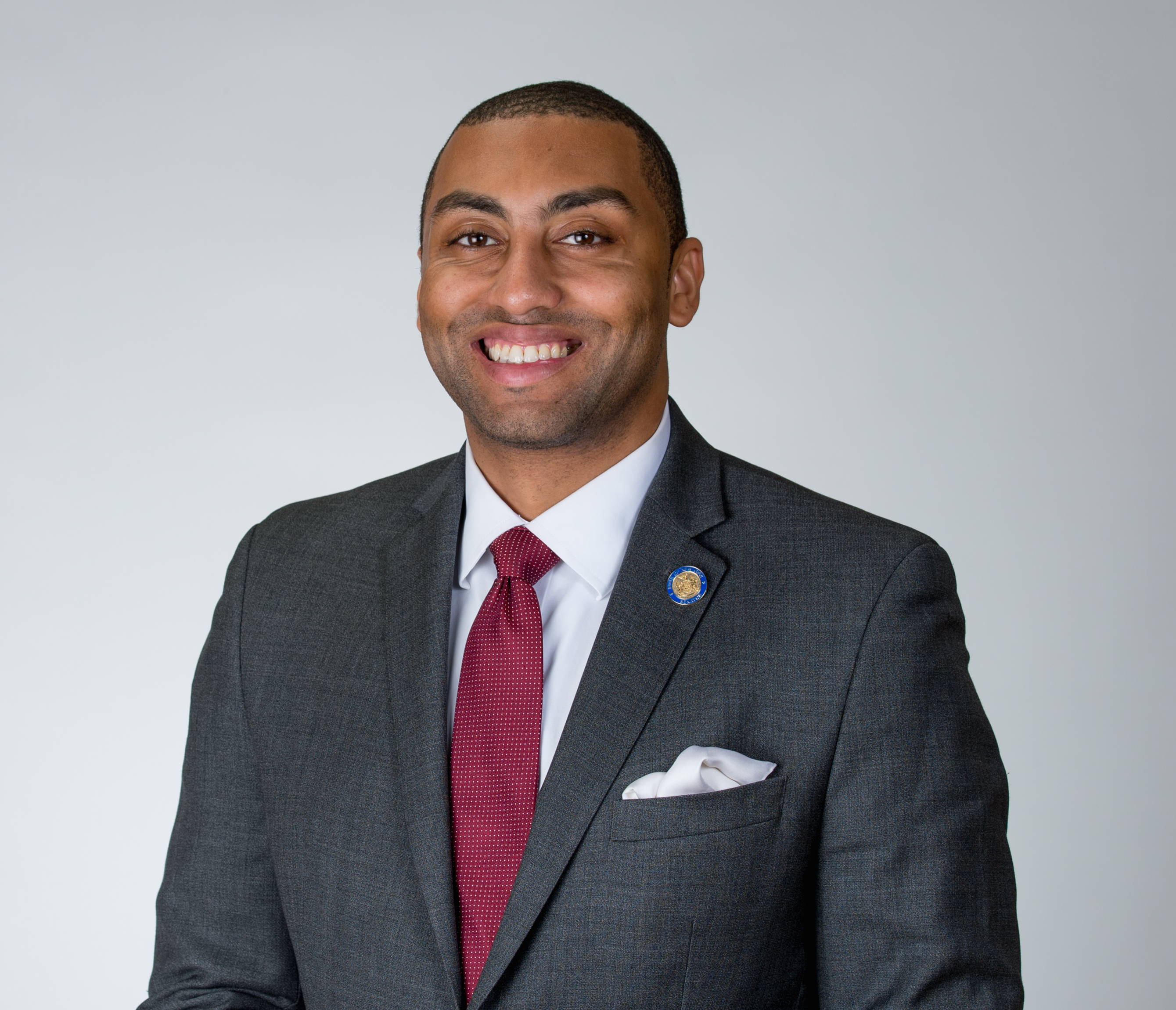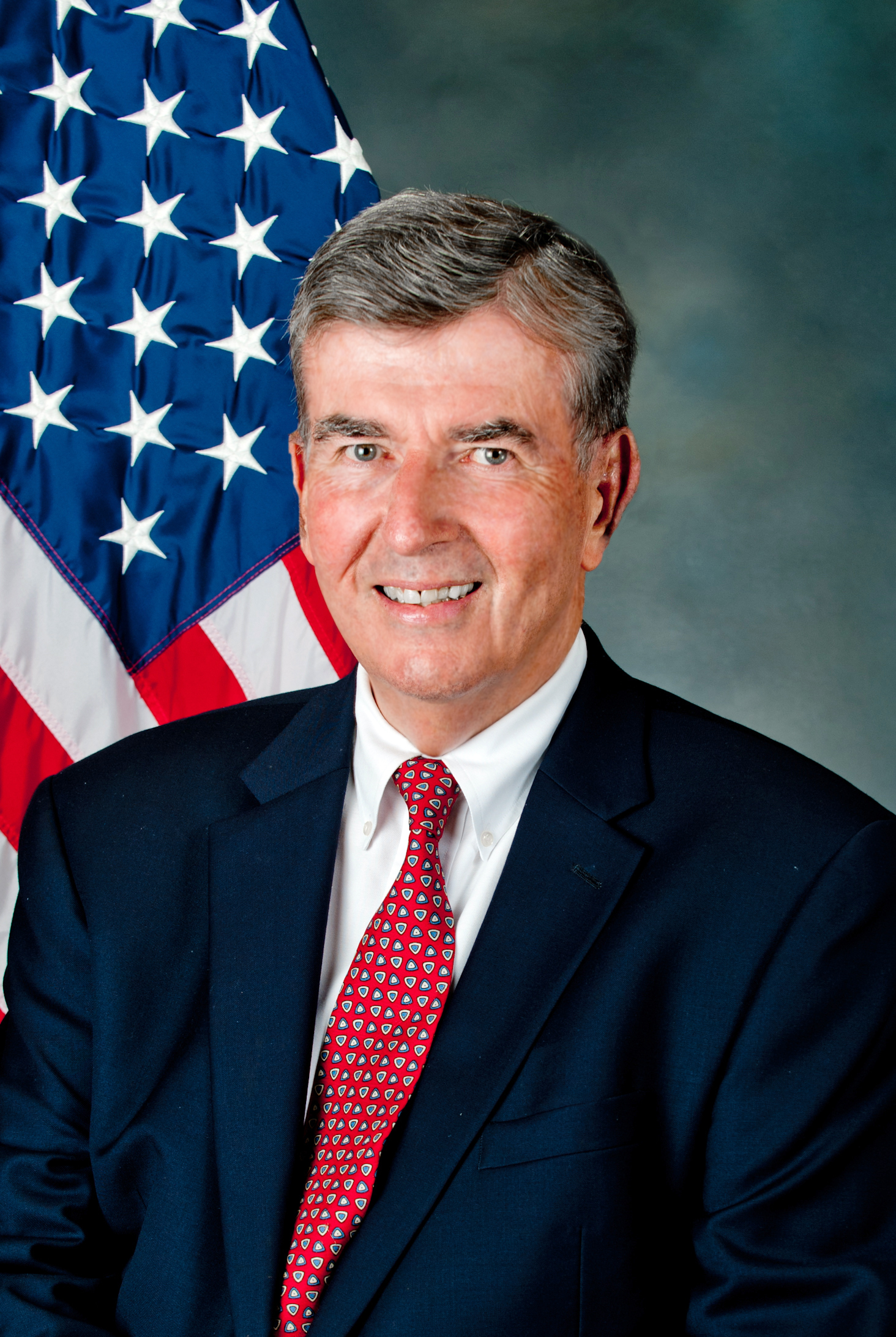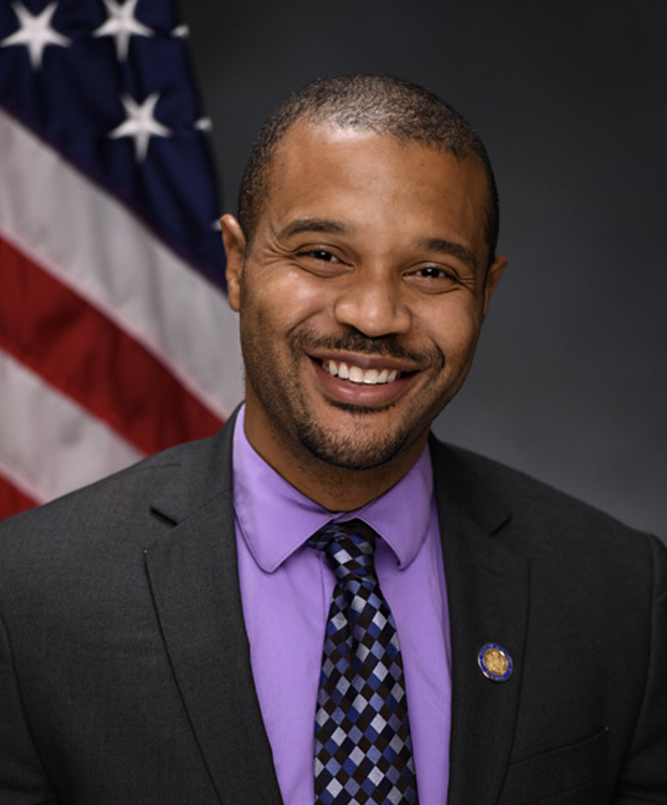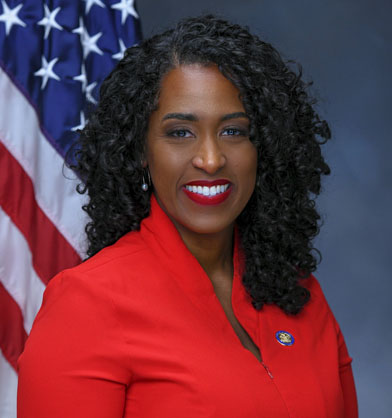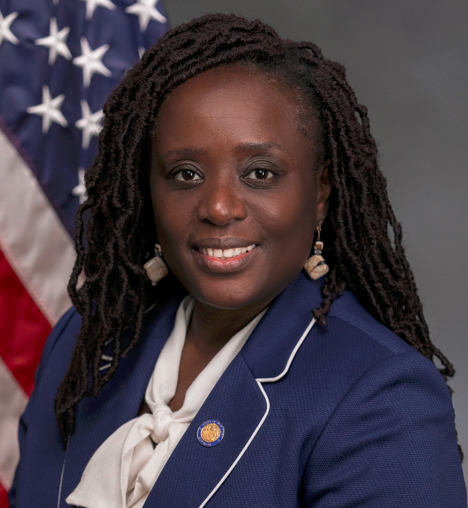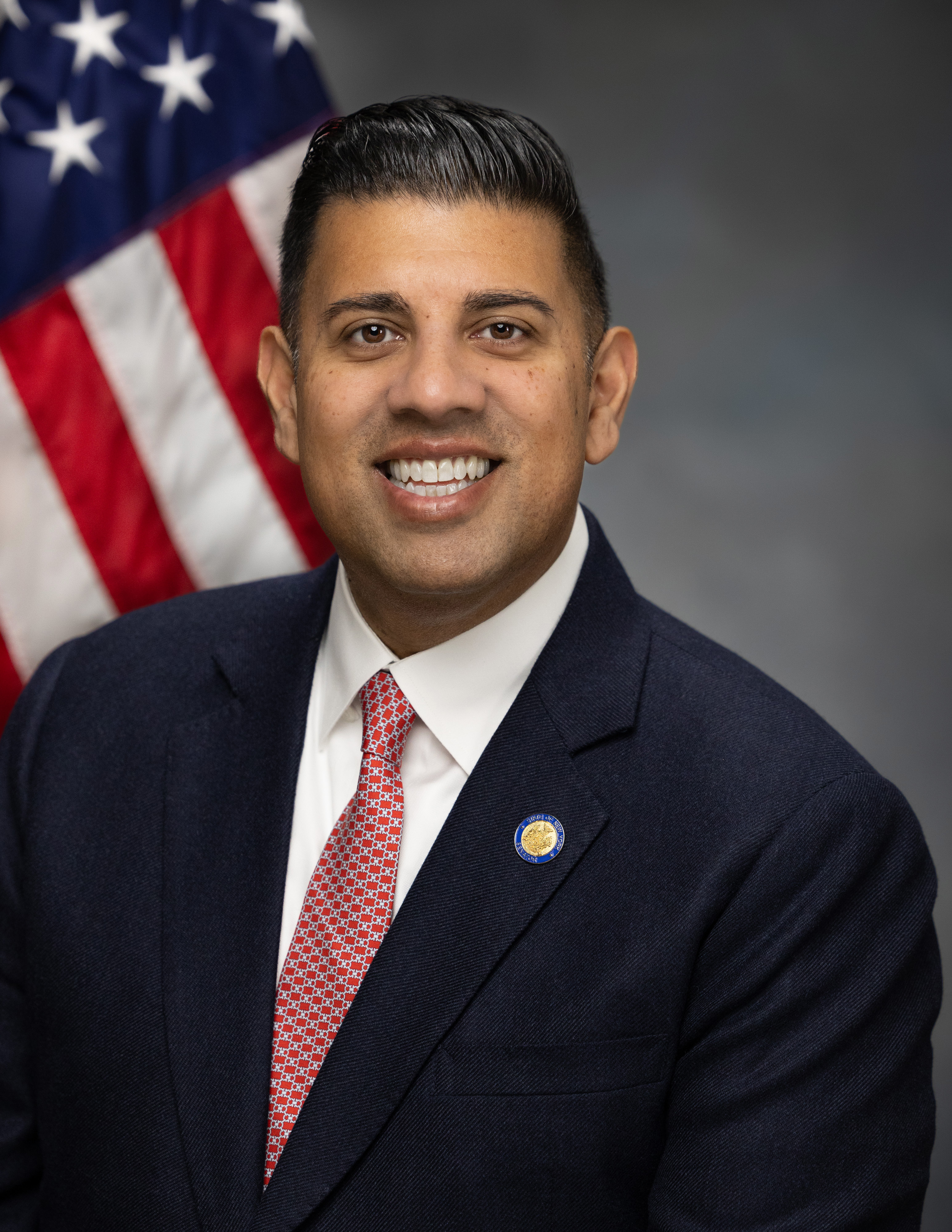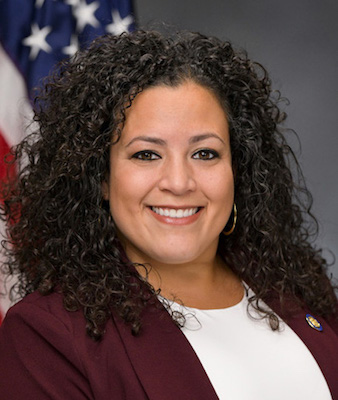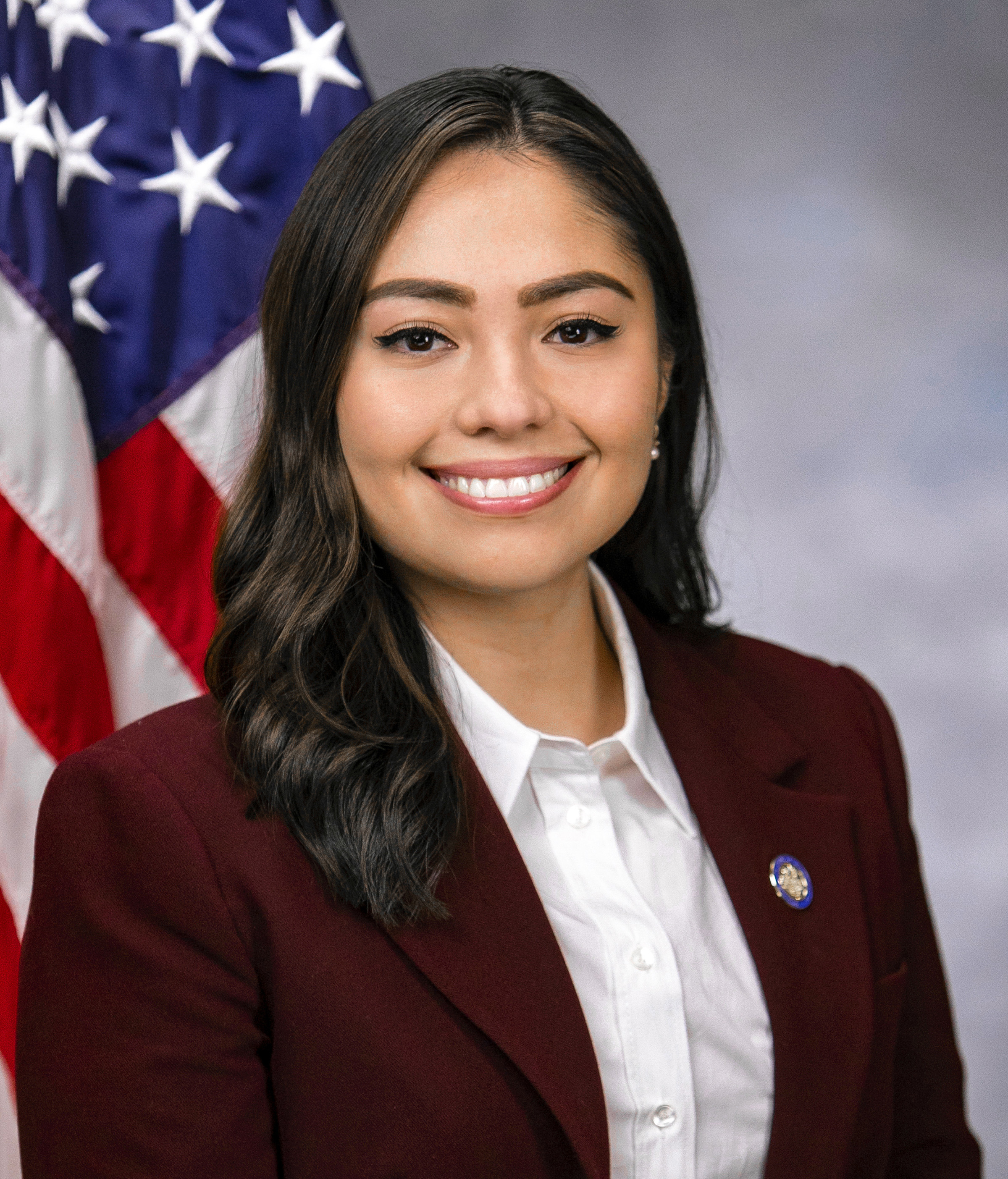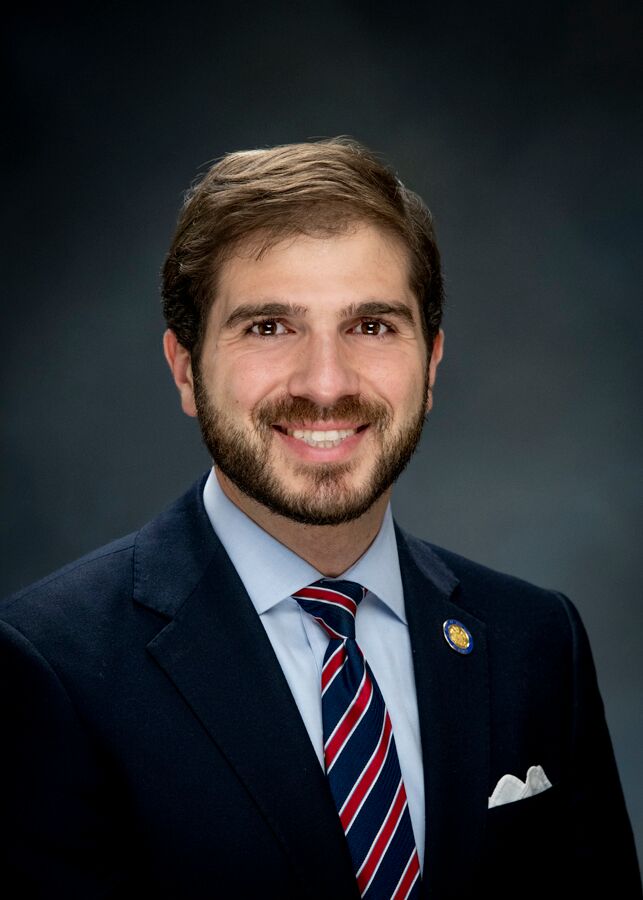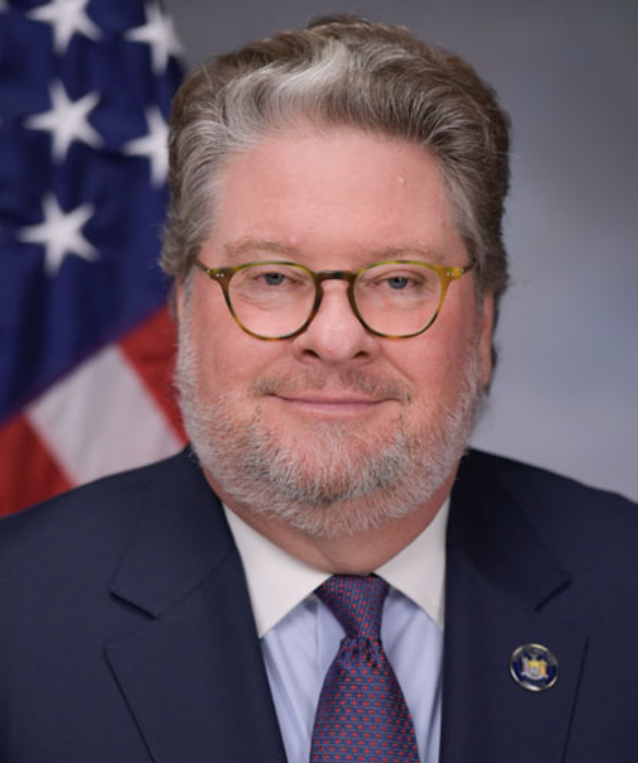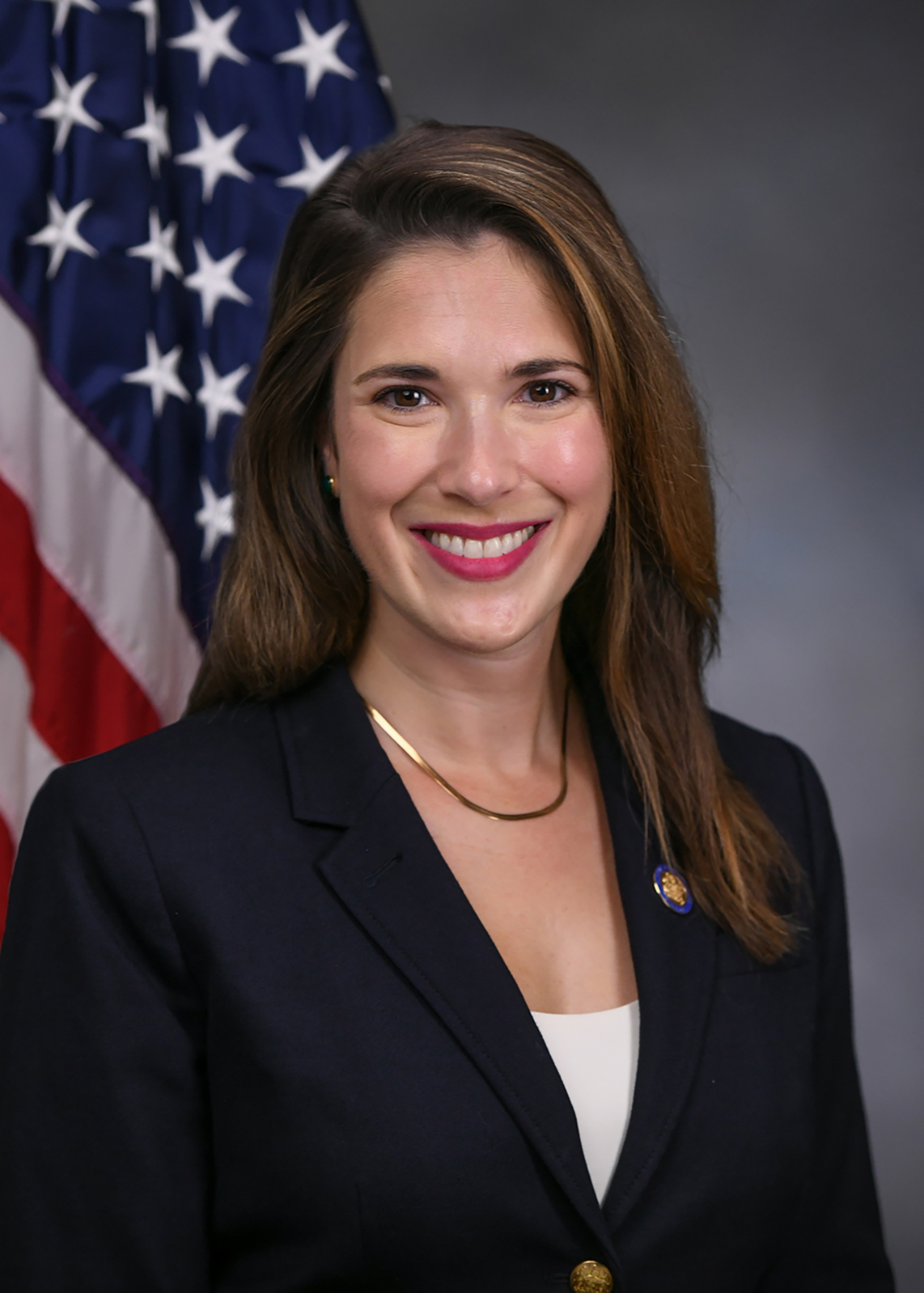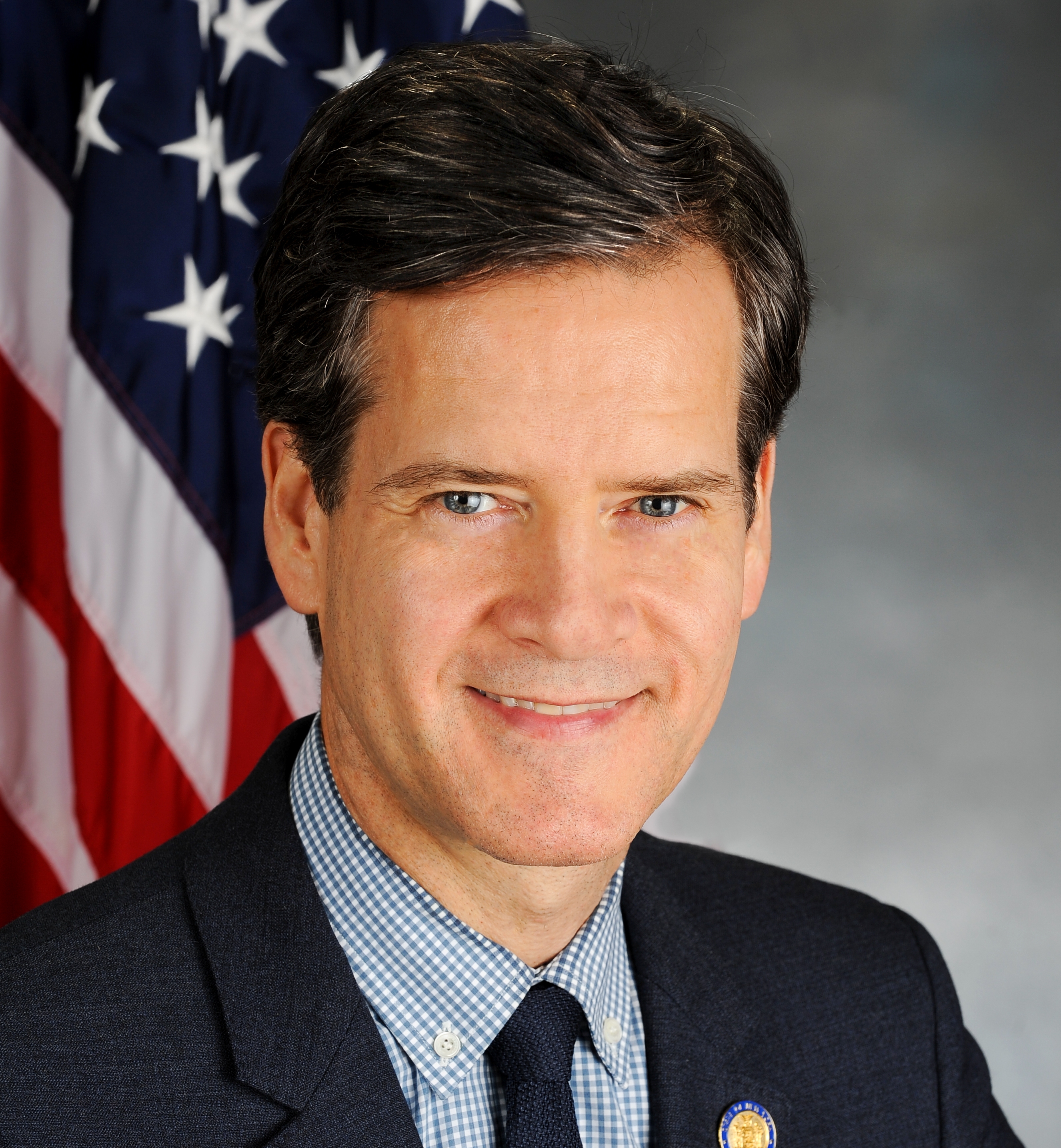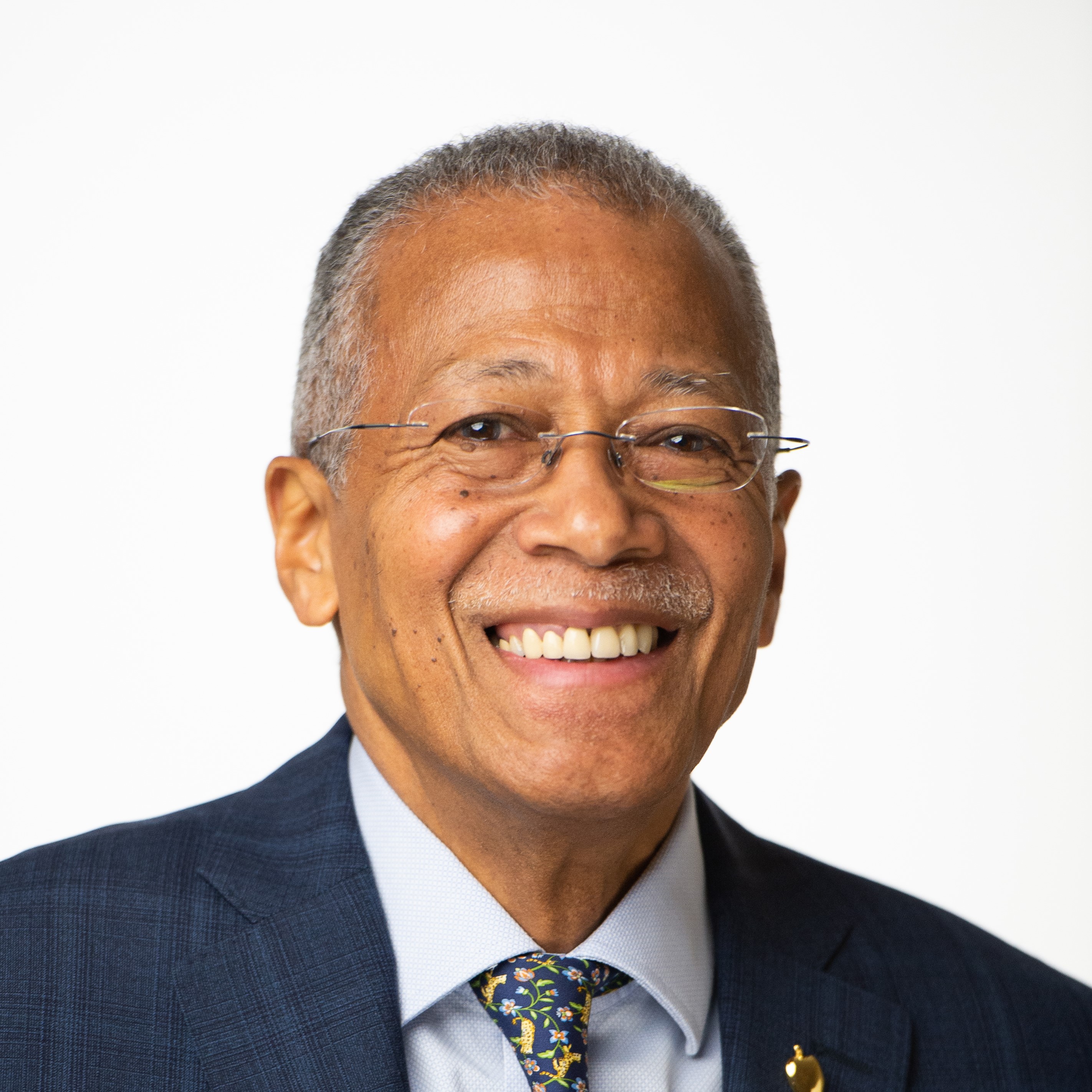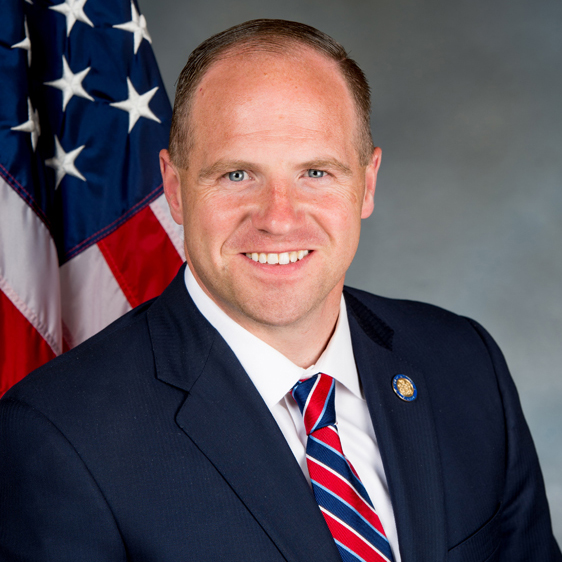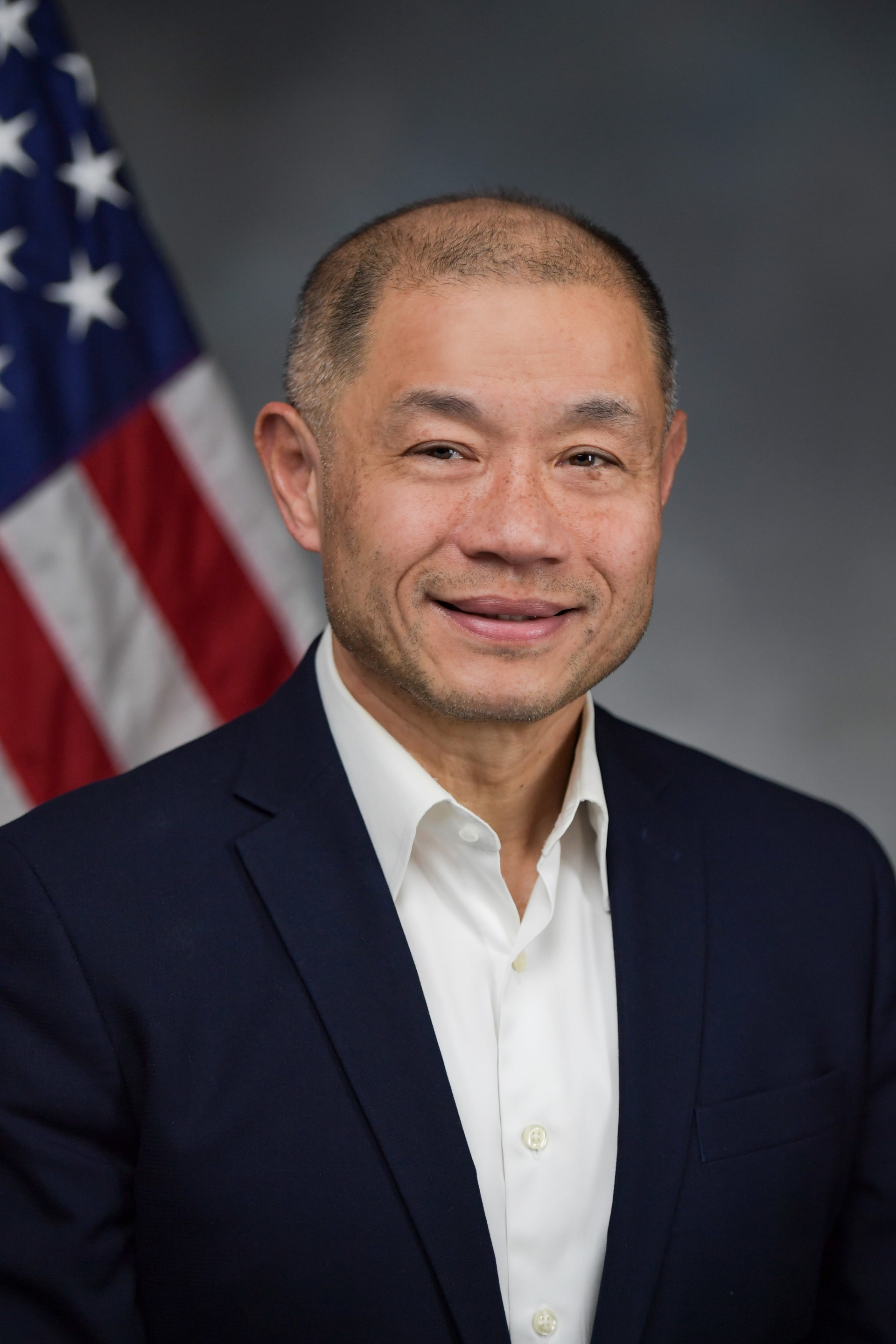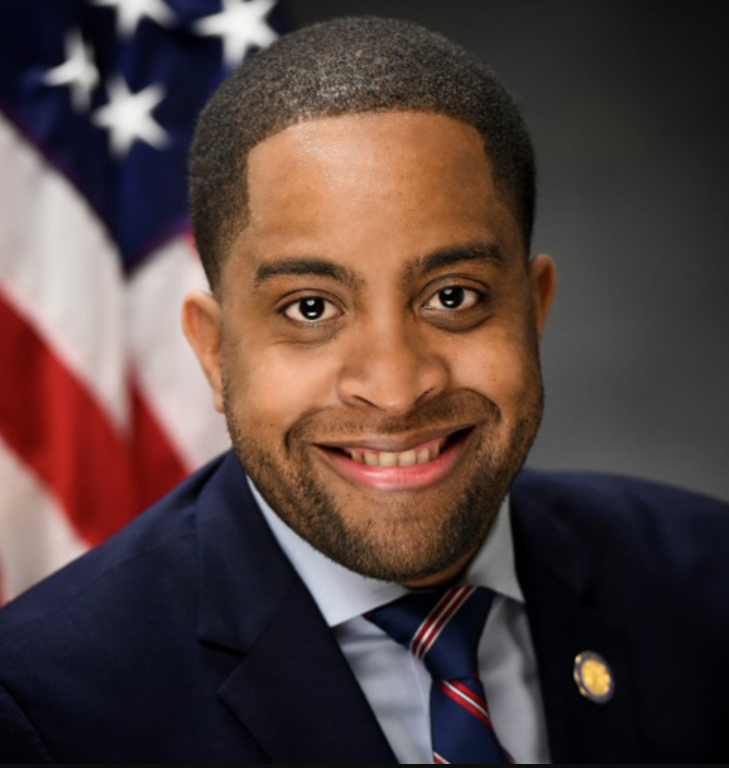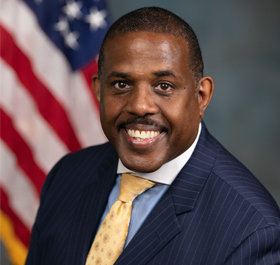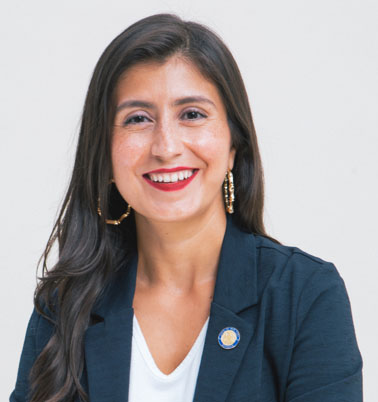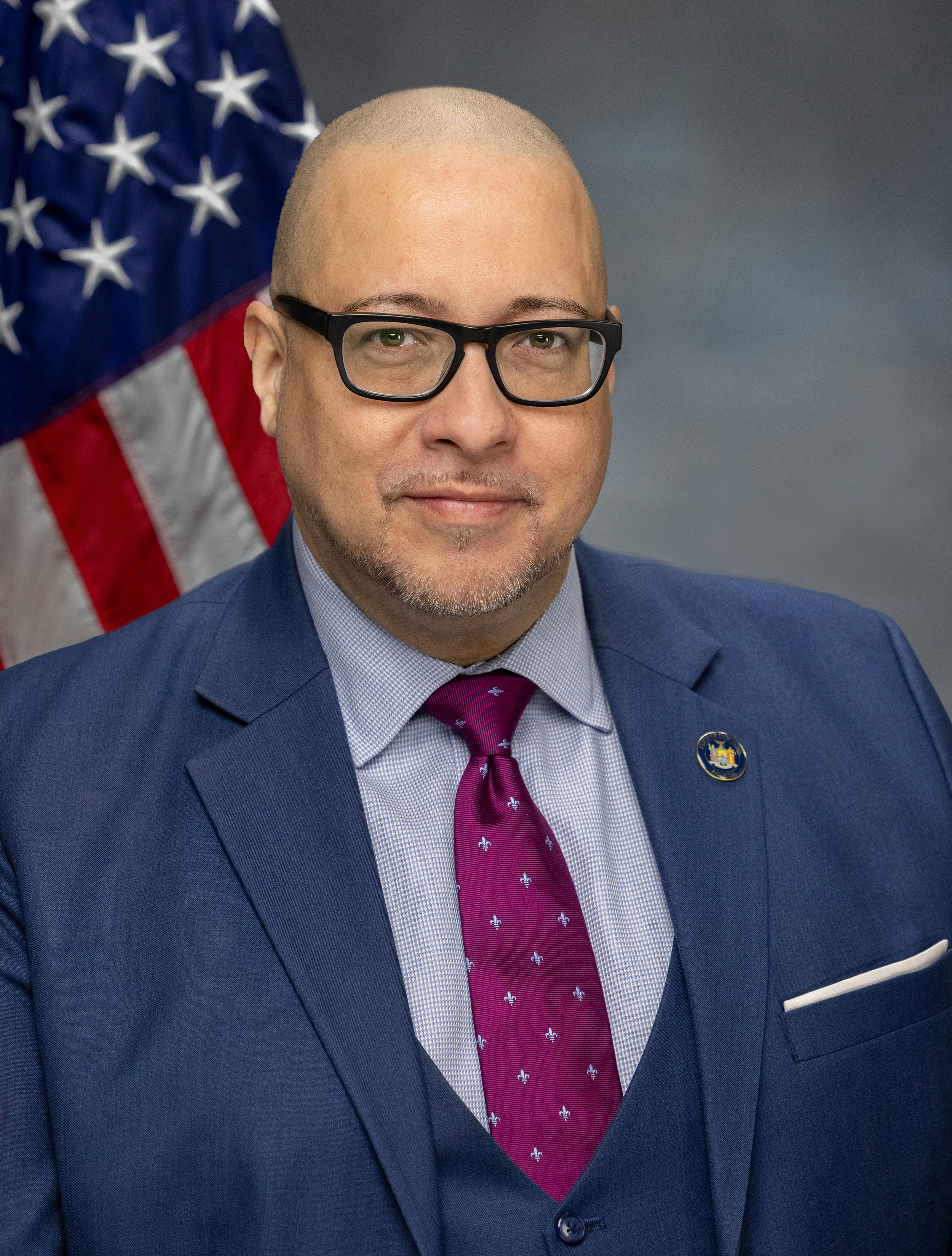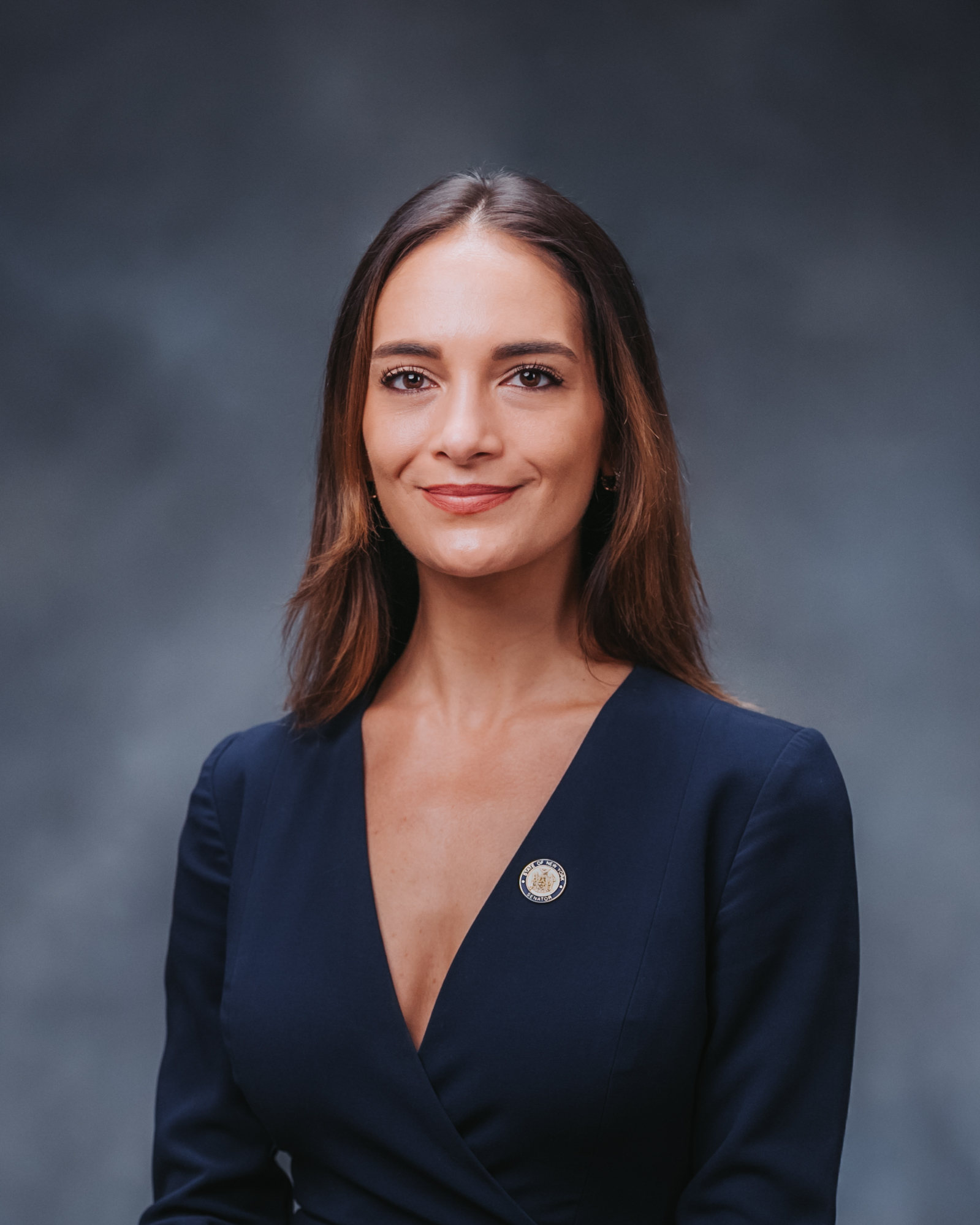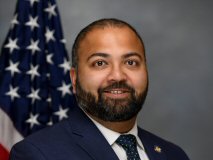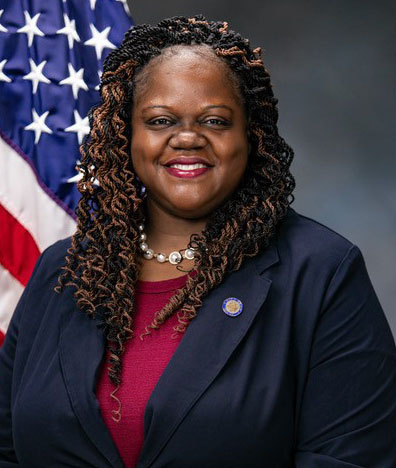| Date of Action |
Assembly Actions -
Lowercase Senate Actions - UPPERCASE |
|---|---|
| May 22, 2024 |
reported and committed to finance |
| Mar 26, 2024 |
reported and committed to codes |
| Feb 20, 2024 |
print number 1099a |
| Feb 20, 2024 |
amend and recommit to children and families |
| Jan 03, 2024 |
referred to children and families |
| Feb 13, 2023 |
reported and committed to finance |
| Jan 24, 2023 |
reported and committed to codes |
| Jan 10, 2023 |
referred to children and families |
Find your Senator and share your views on important issues.
Senate Bill S1099A
2023-2024 Legislative Session
Relates to procedures required for the custodial interrogation of children
download bill text pdfSponsored By
(D) 36th Senate District
Archive: Last Bill Status - In Senate Committee Finance Committee
- Introduced
-
- In Committee Assembly
- In Committee Senate
-
- On Floor Calendar Assembly
- On Floor Calendar Senate
-
- Passed Assembly
- Passed Senate
- Delivered to Governor
- Signed By Governor
Actions
Votes
Bill Amendments
co-Sponsors
(D, WF) Senate District
(D, WF) 25th Senate District
(D, WF) 55th Senate District
(D) 30th Senate District
(D) 14th Senate District
(D, WF) 56th Senate District
(D) 34th Senate District
(D, WF) 12th Senate District
(D, WF) 59th Senate District
(D) 26th Senate District
(D, WF) 40th Senate District
(D, WF) 41st Senate District
(D, WF) 47th Senate District
(D, WF) 31st Senate District
(D) 27th Senate District
(D, WF) Senate District
(D, WF) 28th Senate District
(D) 16th Senate District
(D, WF) 48th Senate District
(D, WF) 37th Senate District
(D) 20th Senate District
(D, WF) 21st Senate District
(D, WF) 13th Senate District
(D, WF) 33rd Senate District
(D, WF) 18th Senate District
(D) 10th Senate District
(D) 32nd Senate District
(D, WF) 29th Senate District
(D) 11th Senate District
(D) Senate District
(D, WF) 52nd Senate District
2023-S1099 - Details
- See Assembly Version of this Bill:
- A8923
- Current Committee:
- Senate Finance
- Law Section:
- Family Court Act
- Laws Affected:
- Amd §§305.2 & 724, Fam Ct Act; amd §§140.20, 140.27 & 140.40, CP L
- Versions Introduced in Other Legislative Sessions:
-
2019-2020:
S4980, A6982
2021-2022: S2800, A5891
2025-2026: S878, A2620
2023-S1099 - Sponsor Memo
BILL NUMBER: S1099
SPONSOR: BAILEY
TITLE OF BILL:
An act to amend the family court act and the criminal procedure law, in
relation to the custodial interrogation of juveniles by law enforcement
PURPOSE:
This bill makes a number of changes to the Family Court Act to clarify
and protect the rights of children in the custody of law enforcement and
makes corresponding changes to the Criminal Procedure Law to address
children arrested as juvenile offenders and adolescent offenders. The
bill would require that children under 18 consult with an attorney
before they can be subjected to custodial interrogation by law enforce-
ment, thereby ensuring any waiver of rights under Miranda is genuinely
knowing, voluntary, and intelligent. The bill also requires that a child
arrested without a warrant be brought directly to court, as opposed to
the police station, if a parent or legally responsible adult is not
expected to appear for them and they are not being questioned, unless
otherwise required under the Criminal Procedure Law. It also defines the
term "necessary," which circumscribes the limited circumstances under
which custodial interrogation of such a child is permissible. SUMMARY OF PROVISIONS: Section One amends FCA § 305.2(3) to make clear that law enforcement's obligation to "immediately" notify a parent or person legally responsi- ble (PLR) that their child has been taken into custody requires that this notification take place before that child can be taken from the location at which he or she was taken into custody to the police station or any other location. Section Two amends FCA § 305.2(4)(a) to state that when law enforcement has notified an arrested child's pare t or PLR and reasonably believes that the parent or PLR will appear for the child, law enforcement shall take that child to his home, the station house, or another agreed upon location to release him to his parent or PLR. Section Three amends FCA § 305.2(4)(b) to state that when law enforce- ment does not reasonably believe that an arrested child's parent or PLR will appear for the child, law enforcement shall take that child to family court or, if family court is not in session, to the designated magistrate for the child's initial appearance under FCA § 307.4. Section Four amends FCA § 305.2(4)(c) to conform with other amended subsections and clarify that an arrested child shall only be taken to detention if the officer did not release the child or bring the child to family court or the designated magistrate. Section Five amends FCA c 305.2(5) by deleting a clause related to the circumstances of questioning, which is moved to the new FCA § 305.2(7) (see Section Seven, below). Section Six amends FCA for conformity only, by deleting the phrase "In all other cases." Section Seven amends and renumbers FCA 305.2 (7) to FCA g 305.2(8) and adds a new FCA 305.2(7) which clarifies that an officer may determine that questioning of a child is necessary only when the officer "reason- ably determines that the child's life or health, or the life or health of another individual, is in imminent danger and that the child may have information that would assist the officer in taking protective action." Section Seven also amends FCA § 305.2(8) to state that no child shall be questioned under this section unless and until "the child has consulted with an attorney in person, by telephone, or by video conference," and establishes that this consultation may not be waived. Section Eight creates FCA § 305.2(9), which establishes that when law enforcement determines that questioning of a child suspect is necessary, "in determining the reasonable amount of time for questioning, the offi- cer shall consider, among other things, the child's age and develop- mental ability, and the presence or absence of the child's parents or other persons legally responsible for the child's care." Section Nine creates FCA § 305.2(10), which establishes that a child's statement shall be suppressed when the child has not consulted with an attorney; when a parent or person legally responsible, if present, has not been advised of and voluntarily waived Miranda; or when the ques- tioning of the child was not necessary. Section 10 amends FCA § 724(a) to make clear that law enforcement's obligation with respect to a child taken into custody as a person in need of supervision to "immediately" notify a parent or person legally responsible that their child has been taken into custody requires that this notification takes place before that child can be taken from the location at which he or she was taken into custody to the police station or any other location. Section 10 also mends FCA § 724(b) by removing language relating to when law enforcement deems questioning of the child necessary, renumbers FCA § 724(d) to Cu § 724(e), and inserts a new FCA § 724(d), which clarifies that an officer may determine that questioning of a child is necessary only when the officer "reasonably determines that the child's life or health, or the life or health of another individual, is in imminent danger and that the child may have information that would assist the officer in taking protective action. FCA § 724(e) now provides that in addition to the child's age and the presence or absence of his parents or other person legally responsible for his care, parental notification shall be a factor considered in determining the suitability and reason- able period of time for questioning the child. Section 10 also creates FCA § 724(f), which provides that statements made to law enforcement prior to the commencement of a fact-finding hearing may not be admitted into evidence at a fact-finding hearing. Section Eleven amends CPL § 140.20(6) to create separate paragraphs and in paragraph (a) makes clear that law enforcement's obligation with respect to a child taken into custody as a juvenile offender or as a person sixteen (or as of October 1, 2019, seventeen) to "immediately" notify a parent or person legally responsible that their child has been taken into custody requires that this notification takes place before that child can be taken from the location at which he/she was taken into custody to the police station or any other location. Section Eleven also, in proposed CPL § 140.20(6) (b), which already enforcement when necessary, defines necessary as when the officer "reasonably determines that the child's life or health, or the life or health of another individual, is in imminent danger that the child may have information that would assist the officer in taking protective action." Section Eleven also - in proposed CPL 14020(6)(c) - adds the provision that no child shall be questioned under this section unless and until the child has consulted with an attorney in person, by telephone, or by video conference,' and establishes that this consultation may not be waived. Section Eleven also creates CPL 140.20(6)(e) to establish that a child's statement shall be suppressed when the child has not consulted with an attorney; when a parent or person legally responsible, if present, has not been advised of and voluntarily waived Miranda; or when the ques- tioning of the child was not necessary. Section Twelve amends CPL 140.27(5) to create separate paragraphs and in paragraph (a) makes clear that law enforcement's obligation with respect to a child taken into custody as a juvenile offender or as a person sixteen (or as of October 1, 2019, seventeen) to "immediately" notify a parent or person legally responsible that their child has been taken into custody requires that this notification takes place before that child can be taken from the location at which he or she was taken into custody to the police station or any other location. Section Twelve also, in proposed CPL 8 140.27(5) (b), which already Provides that a child suspect shall only be questioned by law enforce- ment w n necessary, defines necessary as when the Officer "reasonably determines that the child's life or health, or the life or health of another individual, is in imminent danger and that the child may have information that would assist the officer in taking protective action." Section Twelve also, in proposed CPL 140.27(5)(c), adds the provision that no child shall be questioned under this section unless and until the child has consulted with an attorney in person, by telephone, or by video conference," and establishes that this consultation may not be waived. Section Twelve also creates CPL g 140.27(5)(e) to establish that a child's statement shall be suppressed when the child has not consulted with an attorney; when a parent or person legally responsible, if pres- ent, has not been advised of and voluntarily waived Miranda; or when the questioning of the child was not necessary. Section Thirteen amends CPL g 140.40(5) to create separate paragraphs and in paragraph (a) makes clear that law enforcement's obligation with respect to a child taken into custody as a juvenile offender or as a person sixteen (or as of October 1, 2019, seventeen) to "immediately" notify a parent or person legally responsible that their child has been taken into custody requires that this notification takes place before that child can be taken from the location at which he or she was taken into custody to the police station or any other location. Section Thirteen also, in proposed CPL g 140.40(5)(b) which already provides that a child suspect shall only be questioned by law enforce- ment when necessary, defines necessary as when the officer "reasonably determines that the child's life or health, or the life or health of another individual, is in imminent danger and that the child may have information that would assist the officer in taking protective action." Section Thirteen also, in proposed CPL 5 140.40(5)(c) adds the provision that no child shall be questioned under this section unless and until "the child has consulted with an attorney in person, by telephone, or by video conference," and establishes that this consultation may not be waived. Section Thirteen also creates CPL A 140.40(5)(e) to establish that a child's statement shall be suppressed when the child has not consulted with an attorney; when a parent or person legally responsible, if pres- ent, has not been advised of and voluntarily waived Miranda; or when the questioning of the child was not necessary. EXISTING LAW: Existing law in New York State does not ensure that children under 18 years old - with all of their inherent developmental limitations - are adequately and appropriately able to protect their right to remain silent pursuant to the 5th Amendment of the United States Constitution. The Family Court Act and the Criminal Procedure Law already require law enforcement to "immediately" notify the parent or person legally respon- sible of a child's arrest. The term "immediate," however, is undefined under current law, and in practice, law enforcement regularly brings arrested children to the police station house before notifying parents or persons legally responsible The statutes also state that law enforce- ment may only interrogate children when "necessary," but do not define that crucial term. This ambiguity not only places vulnerable youth at risk of being unreasonably interrogated, but it also forces law enforce- ment to contend with uncertainty about what they are permitted to do under the law, and leaves the courts with little guidance when called uoon to interpret this requirement. Also under current law, when the police take a youth into custody and wish to interrogate that youth, the police must advise the child of his/her right to rem ain silent and, whenever possible, notify a parent or responsible adult to assist the youth in deciding whether to waive this right. Family Court Act305.2; Criminal Procedure Law 140.20(6). This process does not prevent youth from waiving their Miranda rights nor does it ensure that waiver is knowing, voluntary and intelligent, as required by the Constitution. JUSTIFICATION: The bill makes three crucial changes to 305.2 of the Family Court Act and to § 140.20(6), 140.27(5) and 140.40(5) of the Criminal Procedure Law. First, it clarifies that law enforcement cannot take a child to the station house until they have notified a parent or person legally responsible. Second, it defines the term "necessary" in the context of juvenile interrogation. Third, it requires that juveniles consult with counsel before they can waive their rights under Miranda. The bill also makes the first two changes to Family Court Act section 724. Family Court Act §§ 305.2. and 724 and Criminal Procedure Law §§ 140.20(6), 140.27(5) and 140.40(5) already require that law enforcement immediately notify an arrested child's parent or legally responsible adult that the child has been taken into custody; this proposal clari- fies that immediate notification must take place before the officer takes the child to another location. In an era in which all officers are equipped with mobile phones, they are able to make contact with parents without first taking children to the station house. In most cases, this will also mean the officer will be able to make a more immediate deter- mination whether to bring the child to the station house, to the family court, or to another location permitted by statute. Current law establishes that juveniles may only be interrogated by law enforcement when it is necessary, but it does not define "necessary." Under the proposal, questioning is defined to be necessary only when the officer reasonably determines that the child's life or health, or the life or health of another individual, is in imminent danger and that the child may have information that would assist the officer in taking protective action." Courts already grapple with decisions about when the interrogation of children by law enforcement is warranted, and have expressed the importance of clarity regarding both the circumstances warranting interrogation and what constitutes a reasonable period of time for questioning. See, for example, Matter of Louis D., 34 Misc,3d 427 (2011). By providing this dear definition of the term "necessary," the bill not only ensures that vulnerable young people are not subject to unwarranted interrogation, but also provides law enforcement and the courts with crucial direction and assurance about what is permissible the law. Under this proposal, unless questioning is necessary, after notifying a parent, the officer may transport a child to his home, to another agreed upon location, or to the station house for purposes of releasing the child to the parent with a desk appearance ticket under Family Court Act § 305.2 or after securing a written promise from the parent to bring the child to the designated lead agency at specified time and place under Family Court Act § 724. When the officer does not have reason to believe that the parent will appear for the child, unless questioning is neces- sary, the officer may bring the child straightaway to family court, before a designated magistrate, to the designated lead agency, or to another location specified in § 305.2(4) or § 724. Under the proposed Criminal Procedure Law provisions, unless questioning is necessary, after notifying the parent, the officer may release the youth with a desk appearance ticket or bring the youth to the appropriate court or otherwise proceed according to the provisions of the CPL. This bill would also establish that under Family Court Act § 305.2 and Criminal Procedure Law § 140.20(6), 140.27(5) and 140.40(5), a child suspect can only be questioned after consulting with an attorney by phone, video, or in person. That consultation would be non-waivable, and the taking of a statement without consultation with counsel, necessity, or waiver of Miranda rights by a parent if present, would result in suppression of the statement. Under Family Court Act § 724, a statement would not be admissible into evidence at a fact finding hearing, since the petitioner is usually a parent and thus the child can never have the advice and assistance of a parent who does not have a conflict of inter- est. This treatment is comparable to those statements given to the designated lead agency before fact finding. The decision to waive one's constitutional right to be silent has enormous consequences, which is why the law requires that the decision be "knowing, voluntary, and intelligent." See Miranda v. Arizona 384 U.S. 436 (1966). Because chil- dren are fundamentally different from adults, different safeguards are required in order for a child to make a knowing, voluntary and intelli- gent decision about a Miranda waiver. The importance of additional Miranda protections for adolescents is well-grounded in science. It is firmly established that brain develop- ment continues into adulthood, and in recent years, the scientific community has come to a resounding consensus that the prefrontal cortex of the brain which largely governs decision-making and judgment general- ly does not mature until well after the teenage years.* In fact, the research demonstrates that the brain undergoes a "rewiring" process that is not complete until approximately 25 years of age.** As a result, youth are not yet able to consider the long-term consequences of their actions or to resist environmental pressures as well as adults. The ability to consider the consequences of one's actions and vulnerability to environmental pressure are precisely the kinds of issues at play in a custodial interrogation setting.*** Adolescents especially struggle to process information and make sound decisions in stressful situations, such as during interrogation.**** Additionally, research shows that adolescents - especially those in the justice system, who have high rates of intellectual disability - often do not have the cognitive skills necessary to understand the words or concepts in the Miranda warnings. The consensus that adolescents' decision-making capabilities are not fully developed and that, for this reason, young people require unique legal protections has been and embraced by the United States Supreme Court. Children are, in the Court's words, "generally less mature and responsible than adults," they often lack the experience, perspective, and judgment to recognize and avoid choices that could be detrimental to them"; and they are more vulnerable or susceptible to ... outside pressures than adults." J.D.B.V. North Carolina, 131 S.Ct. 2394, 2397 (2011)(internal quotations omitted). In addition, the Supreme Court has recognized that children "have limited understandings of the criminal justice system and the roles of the institutional actors within it" Graham v. Florida, 560 U.S. 48, 78 (2010). Addressing the specific context of police interrogation, the Supreme Court has observed that events that "would leave a man cold and unimpressed can overawe and overwhelm a lad in his early teens." Haley v. Ohio, 332 U.S. 596, 599 juvenile subject of police interrogation cannot be compared to an adult subject" J.D.B., 131 S.Ct. at 2403 (internal quotations omitted). In fact, leading professional organizations with expertise about children agree that attorney consultation is needed during interrogation because of children's developmental limitations. The American Psychological Association, for example, "recommends that particularly vulnerable suspect populations, including youth, persons with developmental disa- bilities, and persons with mental illness, be provided special and professional protection during interrogations such as being accompanied and advised by an attorney or professional advocate."***** The American Academy on Child and Adolescent Psychiatry similarly believes that youth should have an attorney present during questioning by police and that "when interviewing juvenile suspects, police should use terms and concepts appropriate to the individual's developmental level. Any writ- ten material should also be geared to the person's grade level and cognitive capacity. In general, it is not sufficient to simply read or recite information to a juvenile."****** Unfortunately, the presence of a parent or responsible adult does not adequately ensure that a child makes a knowing, voluntary and intelli- gent decision with respect to his or her Miranda rights. Parents often have conflicting interests and often misunderstand the proceedings. Because parents may teach their children to respect and cooperate with law enforcement, they may find it difficult to advise a child in custody not to cooperate. Similarly, parents teach their children to tell the truth; but often a refusal to speak - even when the child believes himself to be "innocent"- is in the youth's legal interests. Parents often find it hard to believe that their child could possibly do whatev- er the child is accused of and therefore urge the child to speak, not realizing that doing so may well undermine the child's legal interests. Furthermore, when children are arrested, it often occurs in the context of intra-familial disputes, discord, or violence. Resulting conflicts of interest force parents to choose between, on the one hand, giving the child in custody the best advice and, on the other, looking out for the best interests of the other family member involved, which is often the parent him/herself. All of these issues are compounded when, as is often the case, the parent has been summoned to the police station in the middle of the night, is feeling humiliated, resentful, or even angry with the child, and is unable to must er the kind of dispassionate and reflective thought process necessary to best advise the child. Finally, often the parent or responsible adult him/herself doesn't understand the meaning and nature of the rights the youth is being asked to waive. Social science research confirms that the existing parental notification process to protect the rights of youth is inadequate. Research has found that when parents are present during interrogation, they almost always either do not help their children make a decision or actually encourage their child their right. Having a child rely exclusively on the an adult who may have conflicting interests and who likely does not him/herself understand the meaning and nature of the right at stake and the potential consequences of waiving that right undermines the purpose of Family Court Act § 305 2 and Criminal Procedure Law §§ 140.20(6), 140.27(5) and 140.40(5). Legal counsel would offer expert, objective advice to young people about Constitutional right to remain and their ability to waive this and speak to the police with the believe of such a conflict-free consultation can children make any waiver of this bedrock right knowingly, voluntarily, and intelligently, in keeping with requirements of the state and federal constitutions. For this reason, youth under 18 years of age facing custodial interrogation must be required to consult with legal counsel to assist in their understanding of their rights and the consequences of waiving those rights prior to waiving their rights under Miranda. LEGISLATIVE HISTORY: 2019-20: S4980B - Referred to Children and Families 2021-22: S2800C - Referred to Finance FISCAL IMPLICATIONS: To be determined. EFFECTIVE DATE: This act shall take effect April 1, 2024.
2023-S1099 - Bill Text download pdf
S T A T E O F N E W Y O R K
________________________________________________________________________
1099
2023-2024 Regular Sessions
I N S E N A T E
January 10, 2023
___________
Introduced by Sens. BAILEY, BRISPORT, CLEARE, COMRIE, GOUNARDES, HOYL-
MAN, JACKSON, KENNEDY, KRUEGER, MYRIE, PARKER, RIVERA, SALAZAR,
SEPULVEDA -- read twice and ordered printed, and when printed to be
committed to the Committee on Children and Families
AN ACT to amend the family court act and the criminal procedure law, in
relation to the custodial interrogation of juveniles by law enforce-
ment
THE PEOPLE OF THE STATE OF NEW YORK, REPRESENTED IN SENATE AND ASSEM-
BLY, DO ENACT AS FOLLOWS:
Section 1. Subdivision 3 of section 305.2 of the family court act, as
added by chapter 920 of the laws of 1982, is amended to read as follows:
3. If an officer takes such child into custody or if a child is deliv-
ered to him OR HER under section 305.1, he OR SHE shall immediately,
BEFORE TRANSPORTING THE CHILD TO THE POLICE STATION HOUSE, notify the
parent or other person legally responsible for the child's care, or if
such legally responsible person is unavailable the person with whom the
child resides, that the child has been taken into custody.
§ 2. Paragraph (a) of subdivision 4 of section 305.2 of the family
court act, as added by chapter 920 of the laws of 1982, is amended to
read as follows:
(a) WHEN THE OFFICER REASONABLY BELIEVES SUCH PARENT OR OTHER PERSON
LEGALLY RESPONSIBLE FOR THE CHILD'S CARE WILL APPEAR, TAKE THE CHILD TO
HIS OR HER HOME, THE STATION HOUSE, OR ANOTHER LOCATION AGREED UPON WITH
THE PARENT OR PERSON LEGALLY RESPONSIBLE, AND release the child to the
custody of [his parents or other person legally responsible for his
care] SUCH PERSON upon the issuance in accordance with section 307.1 of
a family court appearance ticket to the child and the person to whose
custody the child is released; or
§ 3. Paragraph (b) of subdivision 4 of section 305.2 of the family
court act, as amended by section 63 of part WWW of chapter 59 of the
laws of 2017, is amended to read as follows:
EXPLANATION--Matter in ITALICS (underscored) is new; matter in brackets
[ ] is old law to be omitted.
LBD03283-01-3
S. 1099 2 (b) WHEN THE OFFICER DOES NOT REASONABLY BELIEVE THE PARENT OR OTHER PERSON LEGALLY RESPONSIBLE FOR THE CHILD'S CARE WILL APPEAR FOR THE CHILD, forthwith and with all reasonable speed take the child directly, and without his OR HER first being taken to the police station house, to the family court located in the county in which the act occasioning the taking into custody allegedly was committed, or, when the family court is not in session, to the most accessible magistrate, if any, designated by the appellate division of the supreme court in the applicable depart- ment to conduct a hearing under section 307.4 [of this part, unless the officer determines that it is necessary to question the child, in which case he or she may take the child to a facility designated by the chief administrator of the courts as a suitable place for the questioning of children or, upon the consent of a parent or other person legally responsible for the care of the child, to the child's residence and there question him or her for a reasonable period of time]; or § 4. Paragraph (c) of subdivision 4 of section 305.2 of the family court act, as amended by section 3 of part G of chapter 58 of the laws of 2010, is amended to read as follows: (c) WHEN THE OFFICER DOES NOT RELEASE THE CHILD PURSUANT TO PARAGRAPH (A) OF THIS SUBDIVISION, OR TAKE THE CHILD TO FAMILY COURT OR TO A MAGISTRATE PURSUANT TO PARAGRAPH (B) OF THIS SUBDIVISION, take the child to a place certified by the office of children and family services as a juvenile detention facility for the reception of children; or § 5. Subdivision 5 of section 305.2 of the family court act, as amended by chapter 398 of the laws of 1983, is amended to read as follows: 5. If such child has allegedly committed a designated felony act as defined in subdivision eight of section 301.2, and the family court in the county is in session, the officer shall forthwith take the child directly to such family court[, unless the officer takes the child to a facility for questioning in accordance with paragraph (b) of subdivision four. If such child has not allegedly committed a designated felony act and such family court is in session, the officer shall either forthwith take the child directly to such family court, unless the officer takes the child to a facility for questioning in accordance with paragraph (b) of subdivision four or release the child in accordance with paragraph (a) of subdivision four] OR, WHEN THE FAMILY COURT IS NOT IN SESSION, TO THE MOST ACCESSIBLE MAGISTRATE, IF ANY, DESIGNATED BY THE APPELLATE DIVISION OF THE SUPREME COURT IN THE APPLICABLE DEPARTMENT TO CONDUCT A HEARING UNDER SECTION 307.4. § 6. Subdivision 6 of section 305.2 of the family court act, as added by chapter 920 of the laws of 1982, is amended to read as follows: 6. [In all other cases] IF SUCH CHILD HAS NOT ALLEGEDLY COMMITTED A DESIGNATED FELONY ACT, and in the absence of special circumstances, the officer shall release the child in accordance with paragraph (a) of subdivision four. § 7. Subdivisions 7 and 8 of section 305.2 of the family court act, subdivision 7 as amended by chapter 398 of the laws of 1983 and subdivi- sion 8 as amended by chapter 299 of the laws of 2020, are amended and a new subdivision 10 is added to read as follows: 7. IF THE OFFICER DETERMINES THAT QUESTIONING OF THE CHILD IS NECES- SARY PRIOR TO TAKING ACTION AUTHORIZED BY SUBDIVISION FOUR OR FIVE, THE OFFICER MAY TAKE THE CHILD TO A FACILITY DESIGNATED BY THE CHIEF ADMIN- ISTRATOR OF THE COURTS AS A SUITABLE PLACE FOR THE QUESTIONING OF CHIL- DREN OR, UPON THE CONSENT OF A PARENT OR OTHER PERSON LEGALLY RESPONSI- BLE FOR THE CARE OF THE CHILD, TO THE CHILD'S RESIDENCE AND THERE, S. 1099 3 SUBJECT TO THE REQUIREMENTS OF SUBDIVISION EIGHT, QUESTION HIM OR HER FOR A REASONABLE PERIOD OF TIME. 8. A child shall not be questioned pursuant to this section unless [he] OR UNTIL: (A) THE CHILD and a person required to be notified pursuant to subdi- vision three if present, have been advised: [(a)] (I) of the child's right to remain silent; [(b)] (II) that the statements made by the child may be used in a court of law; [(c)] (III) of the child's right to have an attorney present at such questioning; and [(d)] (IV) of the child's right to have an attorney provided for him OR HER without charge if he OR SHE is indigent; AND (B) THE CHILD HAS CONSULTED WITH LEGAL COUNSEL IN PERSON, BY TELE- PHONE, OR BY VIDEO CONFERENCE. THIS CONSULTATION MAY NOT BE WAIVED. [8.] 9. In determining the suitability of questioning and determining the reasonable period of time for questioning such a child, the child's age, the presence or absence of his or her parents or other persons legally responsible for his or her care, notification pursuant to subdi- vision three and, where the child has been interrogated at a facility designated by the chief administrator of the courts as a suitable place for the questioning of juveniles, whether the interrogation was in compliance with the video-recording and disclosure requirements of subdivision five-a of this section shall be included among relevant considerations. 10. IN ADDITION TO STATEMENTS THAT MUST BE SUPPRESSED AS INVOLUNTARILY MADE WITHIN THE DEFINITION IN SUBDIVISION TWO OF SECTION 344.2, A STATE- MENT SHALL BE SUPPRESSED: WHEN THE CHILD HAS NOT CONSULTED WITH LEGAL COUNSEL AS REQUIRED BY PARAGRAPH (B) OF SUBDIVISION EIGHT; OR WHEN A PERSON NOTIFIED PURSUANT TO SUBDIVISION THREE, IF PRESENT, HAS NOT BEEN ADVISED OF AND VOLUNTARILY WAIVED THE RIGHTS DELINEATED IN PARAGRAPH (A) OF SUBDIVISION EIGHT. § 8. Section 724 of the family court act, the section heading and subdivisions (b) and (c) as amended by chapter 843 of the laws of 1980, subdivision (a) as amended by chapter 920 of the laws of 1982, para- graphs (i) and (ii) as amended and paragraph (iv) of subdivision (b) as added by section 4 of part E of chapter 57 of the laws of 2005, para- graph (iii) of subdivision (b) as amended by section 7 of part M of chapter 56 of the laws of 2017, and subdivision (d) as added by chapter 809 of the laws of 1963, is amended to read as follows: § 724. Duties of police officer or peace officer after taking into custody or on delivery by private person. (a) If a peace officer or a police officer takes into custody or if a person is delivered to him OR HER under section seven hundred twenty-three, the officer shall imme- diately, BEFORE TRANSPORTING THE CHILD TO ANY OTHER LOCATION, notify the parent or other person legally responsible for his OR HER care, or the person with whom he OR SHE is domiciled, that he OR SHE has been taken into custody. (b) After making every reasonable effort to give notice under [para- graph] SUBDIVISION (a) OF THIS SECTION, the officer shall (i) WHEN THE OFFICER REASONABLY BELIEVES SUCH PARENT OR OTHER PERSON LEGALLY RESPONSIBLE FOR THE CHILD'S CARE WILL APPEAR, TAKE THE CHILD TO HIS OR HER HOME, THE POLICE STATION HOUSE, OR ANOTHER LOCATION AGREED UPON WITH THE PARENT OR PERSON LEGALLY RESPONSIBLE, AND release the youth to the custody of [his or her parent or other] SUCH person [legal- ly responsible for his or her care] upon the written promise, without S. 1099 4 security, of the person to whose custody the youth is released that he or she will produce the youth before the lead agency designated pursuant to section seven hundred thirty-five of this article in that county at a time and place specified in writing; or (ii) WHEN THE OFFICER DOES NOT REASONABLY BELIEVE SUCH PARENT OR OTHER PERSON LEGALLY RESPONSIBLE FOR THE CHILD'S CARE WILL APPEAR FOR THE CHILD, forthwith and with all reasonable speed take the youth directly, and without first being taken to the police station house, to the desig- nated lead agency located in the county in which the act occasioning the taking into custody allegedly was done[, unless the officer determines that it is necessary to question the youth, in which case he or she may take the youth to a facility designated by the chief administrator of the courts as a suitable place for the questioning of youth or, upon the consent of a parent or other person legally responsible for the care of the youth, to the youth's residence and there question him or her for a reasonable period of time]; or (iii) take a youth in need of crisis intervention or respite services to a runaway and homeless youth crisis services program or other approved respite or crisis program; or (iv) take the youth directly to the family court located in the county in which the act occasioning the taking into custody was allegedly done, provided that the officer affirms on the record that he or she attempted to exercise the options identified in paragraphs (i), (ii) and (iii) of this subdivision, was unable to exercise these options, and the reasons therefor. (c) In the absence of special circumstances, the officer shall release the child in accord with paragraph [(b)] (i) OF SUBDIVISION (B) OF THIS SECTION. (d) IF THE OFFICER DETERMINES THAT QUESTIONING OF THE CHILD IS NECES- SARY PRIOR TO TAKING ACTION AUTHORIZED BY SUBDIVISION (B) OF THIS SECTION, THE OFFICER MAY TAKE THE CHILD TO A FACILITY DESIGNATED BY THE CHIEF ADMINISTRATOR OF THE COURTS AS A SUITABLE PLACE FOR THE QUESTION- ING OF CHILDREN OR, UPON THE CONSENT OF A PARENT OR OTHER PERSON LEGALLY RESPONSIBLE FOR THE CARE OF THE CHILD, TO THE CHILD'S RESIDENCE AND THERE, SUBJECT TO THE REQUIREMENTS OF SUBDIVISION (E) OF THIS SECTION, QUESTION HIM OR HER FOR A REASONABLE PERIOD OF TIME. (E) In determining THE SUITABILITY OF QUESTIONING AND DETERMINING what is a "reasonable period of time" for questioning a child, the child's age [and], the presence or absence of his OR HER parents or other person legally responsible for his OR HER care AND NOTIFICATION PURSUANT TO SUBDIVISION (A) OF THIS SECTION shall be included among the relevant considerations. (F) NO STATEMENT MADE TO A PEACE OFFICER OR A POLICE OFFICER PRIOR TO THE COMMENCEMENT OF A FACT-FINDING HEARING MAY BE ADMITTED INTO EVIDENCE AT A FACT-FINDING HEARING. § 9. Subdivision 6 of section 140.20 of the criminal procedure law, as amended by section 20 of part WWW of chapter 59 of the laws of 2017, is amended to read as follows: 6. (A) Upon arresting a juvenile offender or a person sixteen or [commencing October first, two thousand nineteen,] seventeen years of age without a warrant, the police officer shall immediately, BEFORE TRANSPORTING THE CHILD TO THE POLICE STATION HOUSE, notify the parent or other person legally responsible for his or her care or the person with whom he or she is domiciled, that such JUVENILE offender or [person] SIXTEEN OR SEVENTEEN YEAR OLD has been arrested, and the location of the facility where he or she [is being] WILL BE detained. S. 1099 5 (B) If the officer determines that it is necessary to question a juve- nile offender or [such person] SIXTEEN OR SEVENTEEN YEAR OLD, the offi- cer must take him or her to a facility designated by the chief adminis- trator of the courts as a suitable place for the questioning of children or, upon the consent of a parent or other person legally responsible for the care of the juvenile or [such person] SIXTEEN OR SEVENTEEN YEAR OLD, to his or her residence and there, SUBJECT TO THE REQUIREMENTS OF PARA- GRAPH (C) OF THIS SUBDIVISION, question him or her for a reasonable period of time. (C) A juvenile OFFENDER or [such person] SIXTEEN OR SEVENTEEN YEAR OLD shall not be questioned pursuant to this section unless OR UNTIL: (I) he or she and a person required to be notified pursuant to PARA- GRAPH (A) OF this subdivision, if present, have been advised: [(a)] (A) of the juvenile offender's or [such person's] SIXTEEN OR SEVENTEEN YEAR OLD'S right to remain silent; [(b)] (B) that the statements made by him or her may be used in a court of law; [(c)] (C) of his or her right to have an attorney present at such questioning; and [(d)] (D) of his or her right to have an attorney provided for him or her without charge if he or she is unable to afford counsel[.]; (II) THE JUVENILE OFFENDER OR SIXTEEN OR SEVENTEEN YEAR OLD HAS CONSULTED WITH AN ATTORNEY IN PERSON, BY TELEPHONE, OR BY VIDEO CONFER- ENCE. THIS CONSULTATION MAY NOT BE WAIVED. (D) In determining the suitability of questioning and determining the reasonable period of time for questioning such a juvenile offender or [person] SIXTEEN OR SEVENTEEN YEAR OLD, his or her age, the presence or absence of his or her parents or other persons legally responsible for his or her care and notification pursuant to PARAGRAPH (A) OF this subdivision shall be included among relevant considerations. (E) IN ADDITION TO STATEMENTS THAT MUST BE SUPPRESSED AS INVOLUNTARILY MADE WITHIN THE DEFINITION IN SUBDIVISION TWO OF SECTION 60.45 OF THIS CHAPTER, A STATEMENT SHALL BE SUPPRESSED: WHEN THE CHILD HAS NOT CONSULTED WITH AN ATTORNEY AS REQUIRED BY PARAGRAPH (C) OF THIS SUBDIVI- SION; OR WHEN A PERSON NOTIFIED PURSUANT TO PARAGRAPH (A) OF THIS SUBDI- VISION, IF PRESENT, HAS NOT BEEN ADVISED OF AND VOLUNTARILY WAIVED THE RIGHTS DELINEATED IN PARAGRAPH (C) OF THIS SUBDIVISION. § 10. Subdivision 5 of section 140.27 of the criminal procedure law, as amended by section 23 of part WWW of chapter 59 of the laws of 2017, is amended to read as follows: 5. (A) Upon arresting a juvenile offender or a person sixteen or [commencing October first, two thousand nineteen,] seventeen years of age without a warrant, the peace officer shall immediately, BEFORE TRANSPORTING THE CHILD TO THE POLICE STATION HOUSE, notify the parent or other person legally responsible for his or her care or the person with whom he or she is domiciled, that such JUVENILE offender or [person] SIXTEEN OR SEVENTEEN YEAR OLD has been arrested, and the location of the facility where he or she [is being] WILL BE detained. (B) If the officer determines that it is necessary to question a juve- nile offender or [such person] SIXTEEN OR SEVENTEEN YEAR OLD, the offi- cer must take him or her to a facility designated by the chief adminis- trator of the courts as a suitable place for the questioning of children or, upon the consent of a parent or other person legally responsible for the care of a juvenile offender or [such person] SIXTEEN OR SEVENTEEN YEAR OLD, to his or her residence and there, SUBJECT TO THE REQUIREMENTS S. 1099 6 OF PARAGRAPH (C) OF THIS SUBDIVISION, question him or her for a reason- able period of time. (C) A juvenile offender or [such person] SIXTEEN OR SEVENTEEN YEAR OLD shall not be questioned pursuant to this section unless OR UNTIL: (I) the juvenile offender or [such person] SIXTEEN OR SEVENTEEN YEAR OLD and a person required to be notified pursuant to PARAGRAPH (A) OF this subdivision, if present, have been advised: [(a)] (A) of his or her right to remain silent; [(b)] (B) that the statements made by the juvenile offender or [such person] SIXTEEN OR SEVENTEEN YEAR OLD may be used in a court of law; [(c)] (C) of his or her right to have an attorney present at such questioning; and [(d)] (D) of his or her right to have an attorney provided for him or her without charge if he or she is unable to afford counsel[.]; AND (II) THE JUVENILE OFFENDER OR SIXTEEN OR SEVENTEEN YEAR OLD HAS CONSULTED WITH AN ATTORNEY IN PERSON, BY TELEPHONE OR BY VIDEO CONFER- ENCE. THIS CONSULTATION MAY NOT BE WAIVED. (D) In determining the suitability of questioning and determining the reasonable period of time for questioning such a juvenile offender or [such person] SIXTEEN OR SEVENTEEN YEAR OLD his or her age, the presence or absence of his or her parents or other persons legally responsible for his or her care and notification pursuant to PARAGRAPH (A) OF this subdivision shall be included among relevant considerations. (E) IN ADDITION TO STATEMENTS THAT MUST BE SUPPRESSED AS INVOLUNTARILY MADE WITHIN THE DEFINITION IN SUBDIVISION TWO OF SECTION 60.45 OF THIS CHAPTER, A STATEMENT SHALL BE SUPPRESSED: WHEN THE CHILD HAS NOT CONSULTED WITH AN ATTORNEY AS REQUIRED BY PARAGRAPH (C) OF THIS SUBDIVI- SION; OR WHEN A PERSON NOTIFIED PURSUANT TO PARAGRAPH (A) OF THIS SUBDI- VISION, IF PRESENT, HAS NOT BEEN ADVISED OF AND VOLUNTARILY WAIVED THE RIGHTS DELINEATED IN PARAGRAPH (C) OF THIS SUBDIVISION. § 11. Subdivision 5 of section 140.40 of the criminal procedure law, as amended by section 24 of part WWW of chapter 59 of the laws of 2017, is amended to read as follows: 5. (A) If a police officer takes an arrested juvenile offender or a person sixteen or [commencing October first, two thousand nineteen,] seventeen years of age into custody, the police officer shall immediate- ly, BEFORE TRANSPORTING THE CHILD TO THE POLICE STATION HOUSE notify the parent or other person legally responsible for his or her care or the person with whom he or she is domiciled, that such JUVENILE offender or [person] SIXTEEN OR SEVENTEEN YEAR OLD has been arrested, and the location of the facility where he or she [is being] WILL BE detained. (B) If the officer determines that it is necessary to question a juve- nile offender or [such person] SIXTEEN OR SEVENTEEN YEAR OLD the officer must take him or her to a facility designated by the chief administrator of the courts as a suitable place for the questioning of children or, upon the consent of a parent or other person legally responsible for the care of the juvenile offender or [such person] SIXTEEN OR SEVENTEEN YEAR OLD, to his or her residence and there, SUBJECT TO THE REQUIREMENTS OF PARAGRAPH (C) OF THIS SUBDIVISION, question him or her for a reasonable period of time. (c) A juvenile offender or [such person] SIXTEEN OR SEVENTEEN YEAR OLD shall not be questioned pursuant to this section unless OR UNTIL: (I) he or she and a person required to be notified pursuant to PARA- GRAPH (A) OF this subdivision, if present, have been advised: [(a)] (A) of his or her right to remain silent; S. 1099 7 [(b)] (B) that the statements made by the juvenile offender or [such person] SIXTEEN OR SEVENTEEN YEAR OLD may be used in a court of law; [(c)] (C) of his or her right to have an attorney present at such questioning; and [(d)] (D) of his or her right to have an attorney provided for him or her without charge if he or she is unable to afford counsel[.]; AND (II) THE JUVENILE OFFENDER OR SIXTEEN OR SEVENTEEN YEAR OLD HAS CONSULTED WITH AN ATTORNEY IN PERSON, BY TELEPHONE, OR BY VIDEO CONFER- ENCE. THIS CONSULTATION MAY NOT BE WAIVED. (D) In determining the suitability of questioning and determining the reasonable period of time for questioning such a juvenile offender or [such person] SIXTEEN OR SEVENTEEN YEAR OLD, his or her age, the pres- ence or absence of his or her parents or other persons legally responsi- ble for his or her care and notification pursuant to PARAGRAPH (A) OF this subdivision shall be included among relevant considerations. (E) IN ADDITION TO STATEMENTS THAT MUST BE SUPPRESSED AS INVOLUNTARILY MADE WITHIN THE DEFINITION IN SUBDIVISION TWO OF SECTION 60.45 OF THIS CHAPTER, A STATEMENT SHALL BE SUPPRESSED: WHEN THE CHILD HAS NOT CONSULTED WITH AN ATTORNEY AS REQUIRED BY PARAGRAPH (C) OF THIS SUBDIVI- SION; OR WHEN A PERSON NOTIFIED PURSUANT TO PARAGRAPH (A) OF THIS SUBDI- VISION, IF PRESENT, HAS NOT BEEN ADVISED OF AND VOLUNTARILY WAIVED THE RIGHTS DELINEATED IN PARAGRAPH (C) OF THIS SUBDIVISION. § 12. This act shall take effect April 1, 2024.
co-Sponsors
(D, WF) Senate District
(D, WF) 25th Senate District
(D, WF) 55th Senate District
(D) 30th Senate District
(D) 14th Senate District
(D, WF) 56th Senate District
(D) 34th Senate District
(D, WF) 12th Senate District
(D, WF) 59th Senate District
(D) 26th Senate District
(D, WF) 40th Senate District
(D, WF) 41st Senate District
(D, WF) 47th Senate District
(D, WF) 31st Senate District
(D) 27th Senate District
(D, WF) Senate District
(D, WF) 28th Senate District
(D) 16th Senate District
(D, WF) 48th Senate District
(D, WF) 37th Senate District
(D) 20th Senate District
(D, WF) 21st Senate District
(D, WF) 13th Senate District
(D, WF) 33rd Senate District
(D, WF) 18th Senate District
(D) 10th Senate District
(D) 32nd Senate District
(D, WF) 29th Senate District
(D) 11th Senate District
(D) Senate District
(D, WF) 52nd Senate District
2023-S1099A (ACTIVE) - Details
- See Assembly Version of this Bill:
- A8923
- Current Committee:
- Senate Finance
- Law Section:
- Family Court Act
- Laws Affected:
- Amd §§305.2 & 724, Fam Ct Act; amd §§140.20, 140.27 & 140.40, CP L
- Versions Introduced in Other Legislative Sessions:
-
2019-2020:
S4980, A6982
2021-2022: S2800, A5891
2025-2026: S878, A2620
2023-S1099A (ACTIVE) - Sponsor Memo
BILL NUMBER: S1099A
SPONSOR: BAILEY
TITLE OF BILL:
An act to amend the family court act and the criminal procedure law, in
relation to the custodial interrogation of juveniles by law enforcement
PURPOSE:
This bill makes several changes to the Family Court Act to clarify and
protect the rights of children in the custody of law enforcement and
makes corresponding changes to the Criminal Procedure Law to address
children arrested as juvenile offenders and consult with an attorney
before they can be subjected to custodial interrogation by law enforce-
ment, thereby ensuring any waiver of rights under Miranda is genuinely
knowing, voluntary, and intelligent. The bill also requires that a child
arrested without a warrant be brought directly to court, as opposed to
the police station, if a parent or legally responsible adult is not
expected to appear for them and they are not being questioned, unless
otherwise required under the Criminal Procedure Law.
SUMMARY OF PROVISIONS: Section One amends FCA § 305.2(3) to make clear that law enforcement's obligation to "immediately" notify a parent. or person legally responsi- ble (PLR) that their child has been taken into custody requires that this notification take place before that child can be taken from the location at which he or she was taken into custody to the police station or any other location. Section Two amends FCA § 305.2(4) (a) to state that when law enforcement has notified an arrested child's pare t or PLR' and reasonably believes that the parent or PLR will appear for the child, law enforcement shall take that child to his home, the station house, or another agreed upon location to release him to his parent-or PLR. Section Three amends FCA § 305.2(4) (b) to state that when law enforce- ment does not reasonably believe that an arrested child's parent or PLR will appear for the child, law enforcement shall take that child to family court or, if family court is not in session, to the designated magistrate for the child's initial appearance under FCA § 307.4. Section Four amends FCA § 305.2(4) (c) to conform with other amended subsections and clarify that an arrested child shall only be taken to detention if the officer did not release the child or bring the child to family court or the designated magistrate. Section Five amends FCA § 305.2(5) to require that when a child has allegedly committed a designated felony act and the family court is not in session that law enforcement to take such youth to the most accessi- ble magistrate to conduct a hearing under FCA section 307.4 Section Six amends FCA § 305.2(6) for conformity only, by deleting the phrase "In all other cases." Section Seven amends and renumbers FCA § 305.2(7) to FCA § 305.2(8) and adds a new FCA § 305.2(7) which clarifies that if an officer determines that questioning of a child necessary prior to taking certain actions the officer may take the child to a facility designated as suitable for questioning by the chief administrator of the courts. Section Seven also amends FCA § 305.2(8) to state that no child shall be questioned under this section unless and until "the child has consulted with an attorney in person, by telephone, or by video conference," and establishes that this consultation may not be waived. Also, section seven establishes that a child's statement shall be suppressed when the child has not consulted with an attorney; when a parent or person legally responsible, if present, has not been advised of and voluntarily waived Miranda; or when the questioning of the child was not necessary. Section 8 amends FCA § 724(a) to make clear that law enforcement's obli- gation with respect to a child taken into custody as a person in need of supervision to "immediately" notify a parent or person legally responsi- ble that their child has been taken into Custody requires that this notification takes place before that child can be taken from the location at which he or she was taken into custody to the police station or any other location. Section 8 also mends FCA § 724(b) by removing language relating to when law enforcement deems questioning of the child necessary, renumbers FCA § 724(d) to FCA § 724(e), and inserts a new FCA § 724(d), which clarifies that if an officer determines that questioning in necessary prior to taking certain actions the officer may take the child to a facility designated as suitable for questioning by the chief administrator of the courts. FCA § 724(e) now provides that in addition to the child's age and the presence or absence of his parents or other person legally responsible for his care, parental notification shall be a factor considered in determining the suitability and reasonable period of time for questioning the child. Section 8 also creates FCA § 724(f), which provides that statements made to law enforcement prior to the commencement of a fact-finding hearing may not be admitted into evidence at a fact-finding hearing. Section 9 amends CPL § 140.20(6) to create separate paragraphs and in paragraph (a) makes clear that law enforcement's obligation with respect to a child taken into, custody as a juvenile offender or as a person sixteen (or as of October 1, 2019, seventeen) to "immediately" notify a parent or person legally responsible that their child has been taken into custody requires that this notification takes place before that child can be taken from the location at which he/she was taken into custody to the police station or any other location. Section 9 also, in proposed CPL § 140.20(6) (c), adds the provision that no child snail be questioned under this section unless and until 'The child has consulted with an attorney in person, by telephone, or by video conference," and establishes that this consultation may not be waived. Section 9 also creates CPL § 140.20(6) (e) to establish that a child's statement shall be suppressed when the child haS not consulted with an attorney; when a parent or person legally responsible, if present, has not been advised of and voluntarily waived Miranda; or when the ques- tioning of the child was not necessary. Section 10 amends CPL § 140.27(5) to create separate paragraphs and in paragraph (a) makes clear that law enforcement's obligation with respect to a child taken into custody as a juvenile offender or as a person sixteen (or as of October 1, 2019, seventeen) to "immediately" notify a parent or person legally responsible that their child has been taken into custody requires that this notification takes place before that child can be taken from the location at which he or she was taken into custody to the police station or any other location. Section 10 also, in proposed CPL § 140.27(5) (c) adds the provision that no child shall be questioned under this section unless and until "the child-has consulted with an attorney in person, by telephone, or by video conference," and establishes that this consultation may not be waived. Section 10 also creates CPL.§ 140.27(5)(e) to establish that a child's statement shall be suppressed when the child has not consulted with an attorney; when a parent or person legally responsible, if-present, has not been advised of and voluntarily waived Miranda; or when the ques- tioning of the child was not necessary. sk 1 Section 11 amends CPL § 140.40(5) to create separate paragraphs and in paragraph (a) makes clear that law enforcement's obligation with respect to a child taken into custody as a juvenile offender or as a person sixteen (or as of October 1, 2019, seventeen) to "immediately" notify a parent or person legally responsible that their child has been taken into custody requires that this notification takes place before that child can be taken from the location at which he or she was taken into custody to the police station or any other location. Section 11 also, in proposed CPL § 140.40(5) (c) adds the provision That the child shall be questioned under this section unless and until "the child has consulted with an attorney in person, by telephone, or by video conference," and establishes that this consultation may not be waived. Section 11 also creates CPL § 140.40(5) (e) to establish that a child's statement shall be suppressed when the child has not consulted with an attorney; when a parent or person legally responsible, if present, has not been advised of and voluntarily waived Miranda; or when the ques- tioning of the child was not necessary. Section 12 establishes the effective date of April 1, 2025. EXISTING LAW: Existing law in New York State does not ensure that children under 18 years old - with all of their inherent developmental limitations - are adequately and appropriately able to protect their right to remain silent pursuant to the 5th Amendment of the United States Constitution. The Family Court Act and the Criminal Procedure Law already require law enforcement to "immediately" notify the parent or person legally respon- sible of a child's arrest. The term "immediate," however, is undefined under current law, and in practice, law enforcement regularly brings arrested children to the police station house before notifying parents or persons legally responsible The statutes also state that law enforce- ment may only interrogate children when "necessary," but do not define that crucial term. This ambiguity not only places vulnerable youth at risk of being unreasonably interrogated, but it also forces law enforce- ment to contend with uncertainty about what they are permitted to do under the law and leaves the courts with little guidance when called upon to interpret this requirement. Also,. under current law, when the police take a youth into custody and wish to interrogate that youth, the police must advise the child of his/her right to remain silent and, whenever possible, notify a parent or responsible adult to assist the youth in deciding whether to waive this right. Family Court; Act § 305.2; Criminal Procedure Law § 140.20(6). This process does not prevent youth from waiving their Miranda rights nor does it ensure that waiver is knowing, voluntary and intelligent, as required by the Constitution. JUSTIFICATION: The bill makes three crucial changes to § 305.2 .of the Family Court Act and to. § 140.20(6), 140.27(5) and 140.40(5) of the Criminal Procedure Law. First, it clarifies that law enforcement cannot take a child to the station house until they have notified a parent or person legally responsible. Second, it requires that juveniles consult with counsel before they can waive their rights under Miranda. The bill also makes the first two changes to Family Court Act § 724. Family Court Act §§ 305.2 and 724 and Criminal Procedure Law § 140.20(6), 140.27(5) and 140.40(5) already require that law enforcement immediately notify an arrested child's parent or legally responsible adult that the child has been taken into custody; this proposal clari- fies that immediate notification must take place before the officer takes the child to another location. In an era in which all officers are equipped with mobile phones, they are able to make contact with parents without first taking children to the station house. In most cases, this will also mean the officer will be able to make a more immediate deter- mination whether to bring the child to the station house, to the family court, or to another location permitted by statute. Under this proposal, unless questioning is necessary, after notifying a parent, the officer may transport a child to his home, to another greed upon location, or to the station house for purposes of releasing the child to the parent with a desk appearance ticket under Family Court Act § 305.2 or after securing a written promise from the parent to bring the child to the designated lead agency at specified time and place under Family Court Act § 724. When the officer does not have reason to believe that the parent will appear for the child, unless questioning is neces- sary, the officer may bring the child straightaway to family court, before a designated magistrate, to the designated lead agency, or to another location specified in § 305.2(4) or § 724. Under the proposed Criminal Procedure Law provisions, unless questioning is necessary, after notifying the parent, the officer may release the youth with a desk appearance ticket or bring the youth to the appropriate court or otherwise proceed according to the provisions of the CPL. This bill would also establish that under Family Court Act § 3052 and Criminal Procedure Law § 140.20(6), 140.27(5) and 140.40(5), a child suspect can only be questioned after consulting with an attorney by phone, video, or in person. That consultation would be non-waivable, and the taking of a statement without consultation with counsel, necessity, or waiver of Miranda rights by a parent if present, would result in suppression of the statement. Under Family Court Act § 724, a statement would not be admissible into evidence at a fact-finding hearing since the petitioner is usually a parent -and thus the child can never have the advice and assistance of a parent who does not have a conflict of interest. This treatment is comparable to those statements given to the designated lead agency before fact finding. The decision to waive one's constitutional right to be silent has enor- mous consequences, which is why the law requires. that the decision be "knowing, voluntary, and intelligent." See Miranda v. Arizona 384 U.S. 436 (1966). Because children are fundamentally different from adults, different safeguards are required in order for a child to make .a know- ing, voluntary, and intelligent decision about a Miranda waiver. The importance of additional Miranda protections for adolescents is well-grounded in science. It is firmly established that brain develop- ment continues into adulthood, and in recent years, the scientific community has come to a resounding consensus that the prefrontal cortex of the brain which largely governs decision-making, and judgment gener- ally does not mature until well after the teenage years.* In fact, the research demonstrates that the brain undergoes a "rewiring" process that is not complete until approximately 25 years of age.** As a result, youth are not yet able to consider the longterm consequences of their actions or to resist environmental pressures as well as adults. The ability to consider the consequences of one's actions and vulnerability to environmental pressure are precisely the kinds of issues at play in a custodial interrogation setting.*** Adolescents especially struggle to process information and make sound decisions in stressful situations, such as during interrogation.**** Additionally, research shows that adolescents especially those in the justice system, who have high rates of intellectual disability - often do not have the cognitive skills necessary to understand the words or concepts in the Miranda warnings. The consensus that adolescents' decision-making capabilities are not fully developed and that, for this reason, young people require unique legal protections has been recognized and embraced by the United States Supreme Court. Children are, in the Court's words, "generally less mature and responsible than adults;" "they often lack the experience, perspective, and judgment to recognize and avoid choices that could be detrimental to them"; and "they are more vulnerable or susceptible to outside pressures than adults." J.D.B.V.North Carolina, 131 S.Ct. 2394, 2397 (2011) (internal quotations omitted). In addition, the Supreme Court has recognized that children "have limited understandings of the criminal justice system and the roles of the institutional actors within it" Graham v. Florida, 560 U.S. 48, 78 (2010). Addressing the specific context of police interrogation, the Supreme Court has observed that events that "would leave a man cold and unimpressed can overawe and overwhelm a lad in his early teens." Haley v. Ohio, 332 U.S. 596, 599(1948). Finally, it has noted that "no matter how sophisticated, a juvenile subject of police interrogation cannot be compared to an adult subject" J.D.B., 131 S.Ct. at 2403 (internal quotations omitted). In fact, leading professional organizations with expertise about chil- dren agree that attorney consultation is needed during interrogation because of children's developmental limitations. The American Psycholog- ical Association, for example, "recommends that particularly vulnerable suspect populations, including youth, persons with developmental disa- bilities, and persons with mental illness, be provided special and professional protection during interrogations such as being accompanied and advised by an attorney or professional advocate."****** The American Academy on Child and Adolescent Psychiatry similarly believes that youth should have an attorney present during questioning by police and that "when interviewing juvenile suspects, polite should use terms and concepts appropriate to the individual's developmental level. Any writ- ten material should also be geared to the person's grade level and cognitive capacity. in general, it is not sufficient to simply read or recite information to a juvenile."****** Unfortunately, the presence of a parent or responsible adult does not adequately ensure that a child makes a knowing, voluntary and intelligent decision with respect to his or her Miranda rights. Parents often have conflicting interests and often misunderstand the proceedings. Because parents may teach their children to respect and cooperate with law enforcement, they may find it difficult to advise a child in custody not to cooperate. Similarly, parents teach their chil- dren to tell the truth; but often a refusal to speak - even when the child believes himself to be "innocent"- is in the youth's legal inter- ests. Parents often find it hard to believe that their child could possibly do whatever the child is accused of and therefore urge the child to speak, not realizing that doing so may well undermine the child's legal interests. Furthermore, when children are arrested, it often occurs in the context of intra-familial disputes, discord, or violence. Resulting conflicts of interest force parents to choose between, on the one hand, giving the child in custody the best advice and, on the other, looking out for the best interests of the other fami- ly member involved, which is often the parent him/herself. All of these issues are compounded when, as is often the case, the parent has been summoned to the police station in the middle of the night, is feeling humiliated, resentful, or even angry with the child, and is unable to must er the kind of dispassionate and reflective thought process neces- sary to best advise the child. Finally, often the parent or responsible adult him/herself doesn't understand the meaning and nature of the rights the youth is being asked to waive. Social science research confirms that the existing parental notification process to protect the rights of youth is inadequate. Research has found that. when parents are present during interrogation, they almost always either do not help their children make a decision or actually encourage their children to waive their rights.******* Having a child rely exclusively on the advice of an adult who may have conflicting interests and who likely does not him/herself understand the meaning and nature of the right at stake and the potential consequences of waiving that right undermines the purpose of Family Court Act § 305 2 and Criminal Procedure Law §§ 140.20(6), 140.27(5) and 140.40(5). Legal counsel would offer expert, objective advice to young people about their Constitutional right to remain silent and their ability to waive this right and speak to the police. Only with the benefit of such a conflict-free consultation can children make any waiver of this bedrock right knowingly,' voluntarily, and intelligently, in keeping with requirements of the state and federal Constitutions. For this reason, youth under 18 years of age facing custodial interrogation must be required to consult with legal counsel to assist in their understanding of their rights and the consequences of waiving those rights prior to waiving their rights under Miranda. LEGISLATIVE HISTORY: 2023-2024A.1963/Joyner Referred to Ways and Means 8.1099/Bailey Referred to Children and Families 2021-2021: A.5891C/Joyner - Passed Assembly 8.28000/Bailey - Referred to Senate Finance 2019-2020: A.6982B/Joyner - Referred to Children and Families Committee S. 4980C/Bailey - Referred to Children and Families Committee FISCAL IMPLICATIONS: Although the provision of counsel for consultation at interrogation will inevitably impose a cost to the state and local jurisdictions, this bill will also provide an important cost-saving benefit. Under current law, juvenile defense attorneys and criminal defense attorneys often spend significant amounts of time litigating the legality of their clients' interrogation by law enforcement in what are known as Huntley hearings. These hearings can require several lengthy court appearances, consuming significant resources of defense attorneys, prosecutors, law enforcement witnesses, and judges. If this bill becomes law, it will eliminate the need for a Huntley hearing in the vast majority of cases, significantly reducing the strain on the many agencies and individuals involved. LOCAL FISCAL IMPLICATIONS: None. EFFECTIVE DATEE: This act shall take effect April 1, 2025. * Linda B. Chamberlain, The Amazing Teen Brain: What Every Child Advo- cate Needs to Know, 28 A.B.A. CHILD. L. PRAC. No. 2 at 17-18 (April 2009). ** M. Arain et al., Maturation of the Adolescent Brain, 9 NEUROP- SY-CHIATR.DIS.TREAT.449-461(2013),available at httpsJ/www.ncblnlm.nih.gov/pmc/articles/ PMC3621648/, citing L. Gavin et al., Sexual and Reproductive Health of persons aged 10-24 years United States, 2002-2007, 58(6) MMWR SURVEILL. SUMM. 1-58 (2009). *** See Gold- stein et al., Waving Good-bye to Waiver: A Developmental Argument Against Youths' Waiver of Miranda Rights, Legislation and Public Policy, vol. 21 (2018); Elizabeth Cauffman & Laurence Steinberg, Emerging Find- ings from Research on Adolescent Development and Juvenile Justice, 7 Victims and Offenders 428, 433 (2012); LaurencSteinberg,Adolescent Development and Juvenile Justice, 5 Ann. Re .Clinical Psycho!. 459, 65-71 (2009); Laurence. Steinberg, The Science of Adolescent Brain Development and Its Implication for Adolescent Rights and Responsibil- ities, in Human Rights and Adolescence 59, 64 (Jacqueline Bhabha. ed., 2014); Dustin Albert & Laurence Steinberg, Judgment and Decision-Making in Adolescence, 21 J. Res. Adolescence 211(2011); Linda Van Leijenhorst et al, Adoles ce nt Risky Decision-Making: Neurocognitive Development of Reward and Control Regions, 51 Neuroimage 345; 353-54 (2010). Sarah- Jayne Blakemore & Trevor W. Robbins, Decision-Making in the Adoleicent Brain, 15 Nature Neuroscience 1184, 1186 (2012). **** See Goldstein et al., supra. ***** Resolution on Interrogations of Criminal Suspects, Am. Psychol.Ass'n (2014), http://www.apa.org/about/policy/interrogations.aspx.Interviewing and Interrogating Juvenile Suspects,Am.Acad. Child&AdolescentPsychiatry(Mar.7, 2013), https://wwvv.aacap.org/ aacapipolicy_statements/2013/ Intervievving_and_Interrogating Juvenile- Suspects. aspx. ******* Jodi L. Viljoen et al., Legal Decisions of Preadolescent and Adolescent Defendants: Predictors of Confessions, Pleas, .Communication with. At torneys, and Appeals, 29 Law & Hum. Behay. 253, 261 (2005). Jennifer L Woolard et al., Examining Adoles- cents' and their Parents' Conceptual & Practical Knowledge of Police Interrogation: A Family Dyad Approach, 37 J. Youth & Adolescence 685, 690-94 (2008).
2023-S1099A (ACTIVE) - Bill Text download pdf
S T A T E O F N E W Y O R K
________________________________________________________________________
1099--A
2023-2024 Regular Sessions
I N S E N A T E
January 10, 2023
___________
Introduced by Sens. BAILEY, BRESLIN, BRISPORT, BROUK, CLEARE, COMRIE,
COONEY, FERNANDEZ, GIANARIS, GONZALEZ, GOUNARDES, HARCKHAM, HINCHEY,
HOYLMAN-SIGAL, JACKSON, KAVANAGH, KENNEDY, KRUEGER, LIU, MAY, MAYER,
MYRIE, PARKER, RAMOS, RIVERA, SALAZAR, SANDERS, SEPULVEDA, SERRANO,
STAVISKY, THOMAS, WEBB -- read twice and ordered printed, and when
printed to be committed to the Committee on Children and Families --
recommitted to the Committee on Children and Families in accordance
with Senate Rule 6, sec. 8 -- committee discharged, bill amended,
ordered reprinted as amended and recommitted to said committee
AN ACT to amend the family court act and the criminal procedure law, in
relation to the custodial interrogation of juveniles by law enforce-
ment
THE PEOPLE OF THE STATE OF NEW YORK, REPRESENTED IN SENATE AND ASSEM-
BLY, DO ENACT AS FOLLOWS:
Section 1. Subdivision 3 of section 305.2 of the family court act, as
added by chapter 920 of the laws of 1982, is amended to read as follows:
3. If an officer takes such child into custody or if a child is deliv-
ered to him OR HER under section 305.1, he OR SHE shall immediately,
BEFORE TRANSPORTING THE CHILD TO THE POLICE STATION HOUSE, notify the
parent or other person legally responsible for the child's care, or if
such legally responsible person is unavailable the person with whom the
child resides, that the child has been taken into custody.
§ 2. Paragraph (a) of subdivision 4 of section 305.2 of the family
court act, as added by chapter 920 of the laws of 1982, is amended to
read as follows:
(a) WHEN THE OFFICER REASONABLY BELIEVES SUCH PARENT OR OTHER PERSON
LEGALLY RESPONSIBLE FOR THE CHILD'S CARE WILL APPEAR, TAKE THE CHILD TO
HIS OR HER HOME, THE STATION HOUSE, OR ANOTHER LOCATION AGREED UPON WITH
THE PARENT OR PERSON LEGALLY RESPONSIBLE, AND release the child to the
custody of [his parents or other person legally responsible for his
care] SUCH PERSON upon the issuance in accordance with section 307.1 of
EXPLANATION--Matter in ITALICS (underscored) is new; matter in brackets
[ ] is old law to be omitted.
LBD03283-03-4
S. 1099--A 2 a family court appearance ticket to the child and the person to whose custody the child is released; or § 3. Paragraph (b) of subdivision 4 of section 305.2 of the family court act, as amended by section 63 of part WWW of chapter 59 of the laws of 2017, is amended to read as follows: (b) WHEN THE OFFICER DOES NOT REASONABLY BELIEVE THE PARENT OR OTHER PERSON LEGALLY RESPONSIBLE FOR THE CHILD'S CARE WILL APPEAR FOR THE CHILD, forthwith and with all reasonable speed take the child directly, and without his OR HER first being taken to the police station house, to the family court located in the county in which the act occasioning the taking into custody allegedly was committed, or, when the family court is not in session, to the most accessible magistrate, if any, designated by the appellate division of the supreme court in the applicable depart- ment to conduct a hearing under section 307.4 [of this part, unless the officer determines that it is necessary to question the child, in which case he or she may take the child to a facility designated by the chief administrator of the courts as a suitable place for the questioning of children or, upon the consent of a parent or other person legally responsible for the care of the child, to the child's residence and there question him or her for a reasonable period of time]; or § 4. Paragraph (c) of subdivision 4 of section 305.2 of the family court act, as amended by section 3 of part G of chapter 58 of the laws of 2010, is amended to read as follows: (c) WHEN THE OFFICER DOES NOT RELEASE THE CHILD PURSUANT TO PARAGRAPH (A) OF THIS SUBDIVISION, OR TAKE THE CHILD TO FAMILY COURT OR TO A MAGISTRATE PURSUANT TO PARAGRAPH (B) OF THIS SUBDIVISION, take the child to a place certified by the office of children and family services as a juvenile detention facility for the reception of children; or § 5. Subdivision 5 of section 305.2 of the family court act, as amended by chapter 398 of the laws of 1983, is amended to read as follows: 5. If such child has allegedly committed a designated felony act as defined in subdivision eight of section 301.2, and the family court in the county is in session, the officer shall forthwith take the child directly to such family court[, unless the officer takes the child to a facility for questioning in accordance with paragraph (b) of subdivision four. If such child has not allegedly committed a designated felony act and such family court is in session, the officer shall either forthwith take the child directly to such family court, unless the officer takes the child to a facility for questioning in accordance with paragraph (b) of subdivision four or release the child in accordance with paragraph (a) of subdivision four] OR, WHEN THE FAMILY COURT IS NOT IN SESSION, TO THE MOST ACCESSIBLE MAGISTRATE, IF ANY, DESIGNATED BY THE APPELLATE DIVISION OF THE SUPREME COURT IN THE APPLICABLE DEPARTMENT TO CONDUCT A HEARING UNDER SECTION 307.4. § 6. Subdivision 6 of section 305.2 of the family court act, as added by chapter 920 of the laws of 1982, is amended to read as follows: 6. [In all other cases] IF SUCH CHILD HAS NOT ALLEGEDLY COMMITTED A DESIGNATED FELONY ACT, and in the absence of special circumstances, the officer shall release the child in accordance with paragraph (a) of subdivision four. § 7. Subdivisions 7 and 8 of section 305.2 of the family court act, subdivision 7 as amended by chapter 398 of the laws of 1983 and subdivi- sion 8 as amended by chapter 299 of the laws of 2020, are amended and a new subdivision 10 is added to read as follows: S. 1099--A 3 7. IF THE OFFICER DETERMINES THAT QUESTIONING OF THE CHILD IS NECES- SARY PRIOR TO TAKING ACTION AUTHORIZED BY SUBDIVISION FOUR OR FIVE, THE OFFICER MAY TAKE THE CHILD TO A FACILITY DESIGNATED BY THE CHIEF ADMIN- ISTRATOR OF THE COURTS AS A SUITABLE PLACE FOR THE QUESTIONING OF CHIL- DREN OR, UPON THE CONSENT OF A PARENT OR OTHER PERSON LEGALLY RESPONSI- BLE FOR THE CARE OF THE CHILD, TO THE CHILD'S RESIDENCE AND THERE, SUBJECT TO THE REQUIREMENTS OF SUBDIVISION EIGHT, QUESTION HIM OR HER FOR A REASONABLE PERIOD OF TIME. 8. A child shall not be questioned pursuant to this section unless [he] OR UNTIL: (A) THE CHILD and a person required to be notified pursuant to subdi- vision three if present, have been advised: [(a)] (I) of the child's right to remain silent; [(b)] (II) that the statements made by the child may be used in a court of law; [(c)] (III) of the child's right to have an attorney present at such questioning; and [(d)] (IV) of the child's right to have an attorney provided for him OR HER without charge if he OR SHE is indigent; AND (B) THE CHILD HAS CONSULTED WITH LEGAL COUNSEL IN PERSON, BY TELE- PHONE, OR BY VIDEO CONFERENCE. THIS CONSULTATION MAY NOT BE WAIVED. [8.] 9. In determining the suitability of questioning and determining the reasonable period of time for questioning such a child, the child's age, the presence or absence of his or her parents or other persons legally responsible for his or her care, notification pursuant to subdi- vision three and, where the child has been interrogated at a facility designated by the chief administrator of the courts as a suitable place for the questioning of juveniles, whether the interrogation was in compliance with the video-recording and disclosure requirements of subdivision five-a of this section shall be included among relevant considerations. 10. IN ADDITION TO STATEMENTS THAT MUST BE SUPPRESSED AS INVOLUNTARILY MADE WITHIN THE DEFINITION IN SUBDIVISION TWO OF SECTION 344.2, A STATE- MENT SHALL BE SUPPRESSED: WHEN THE CHILD HAS NOT CONSULTED WITH LEGAL COUNSEL AS REQUIRED BY PARAGRAPH (B) OF SUBDIVISION EIGHT; OR WHEN A PERSON NOTIFIED PURSUANT TO SUBDIVISION THREE, IF PRESENT, HAS NOT BEEN ADVISED OF AND VOLUNTARILY WAIVED THE RIGHTS DELINEATED IN PARAGRAPH (A) OF SUBDIVISION EIGHT. § 8. Section 724 of the family court act, the section heading and subdivisions (b) and (c) as amended by chapter 843 of the laws of 1980, subdivision (a) as amended by chapter 920 of the laws of 1982, para- graphs (i) and (ii) as amended and paragraph (iv) of subdivision (b) as added by section 4 of part E of chapter 57 of the laws of 2005, para- graph (iii) of subdivision (b) as amended by section 7 of part M of chapter 56 of the laws of 2017, and subdivision (d) as added by chapter 809 of the laws of 1963, is amended to read as follows: § 724. Duties of police officer or peace officer after taking into custody or on delivery by private person. (a) If a peace officer or a police officer takes into custody or if a person is delivered to him OR HER under section seven hundred twenty-three, the officer shall imme- diately, BEFORE TRANSPORTING THE CHILD TO ANY OTHER LOCATION, notify the parent or other person legally responsible for his OR HER care, or the person with whom he OR SHE is domiciled, that he OR SHE has been taken into custody. (b) After making every reasonable effort to give notice under [para- graph] SUBDIVISION (a) OF THIS SECTION, the officer shall S. 1099--A 4 (i) WHEN THE OFFICER REASONABLY BELIEVES SUCH PARENT OR OTHER PERSON LEGALLY RESPONSIBLE FOR THE CHILD'S CARE WILL APPEAR, TAKE THE CHILD TO HIS OR HER HOME, THE POLICE STATION HOUSE, OR ANOTHER LOCATION AGREED UPON WITH THE PARENT OR PERSON LEGALLY RESPONSIBLE, AND release the youth to the custody of [his or her parent or other] SUCH person [legal- ly responsible for his or her care] upon the written promise, without security, of the person to whose custody the youth is released that he or she will produce the youth before the lead agency designated pursuant to section seven hundred thirty-five of this article in that county at a time and place specified in writing; or (ii) WHEN THE OFFICER DOES NOT REASONABLY BELIEVE SUCH PARENT OR OTHER PERSON LEGALLY RESPONSIBLE FOR THE CHILD'S CARE WILL APPEAR FOR THE CHILD, forthwith and with all reasonable speed take the youth directly, and without first being taken to the police station house, to the desig- nated lead agency located in the county in which the act occasioning the taking into custody allegedly was done[, unless the officer determines that it is necessary to question the youth, in which case he or she may take the youth to a facility designated by the chief administrator of the courts as a suitable place for the questioning of youth or, upon the consent of a parent or other person legally responsible for the care of the youth, to the youth's residence and there question him or her for a reasonable period of time]; or (iii) take a youth in need of crisis intervention or respite services to a runaway and homeless youth crisis services program or other approved respite or crisis program; or (iv) take the youth directly to the family court located in the county in which the act occasioning the taking into custody was allegedly done, provided that the officer affirms on the record that he or she attempted to exercise the options identified in paragraphs (i), (ii) and (iii) of this subdivision, was unable to exercise these options, and the reasons therefor. (c) In the absence of special circumstances, the officer shall release the child in accord with paragraph [(b)] (i) OF SUBDIVISION (B) OF THIS SECTION. (d) IF THE OFFICER DETERMINES THAT QUESTIONING OF THE CHILD IS NECES- SARY PRIOR TO TAKING ACTION AUTHORIZED BY SUBDIVISION (B) OF THIS SECTION, THE OFFICER MAY TAKE THE CHILD TO A FACILITY DESIGNATED BY THE CHIEF ADMINISTRATOR OF THE COURTS AS A SUITABLE PLACE FOR THE QUESTION- ING OF CHILDREN OR, UPON THE CONSENT OF A PARENT OR OTHER PERSON LEGALLY RESPONSIBLE FOR THE CARE OF THE CHILD, TO THE CHILD'S RESIDENCE AND THERE, SUBJECT TO THE REQUIREMENTS OF SUBDIVISION (E) OF THIS SECTION, QUESTION HIM OR HER FOR A REASONABLE PERIOD OF TIME. (E) In determining THE SUITABILITY OF QUESTIONING AND DETERMINING what is a "reasonable period of time" for questioning a child, the child's age [and], the presence or absence of his OR HER parents or other person legally responsible for his OR HER care AND NOTIFICATION PURSUANT TO SUBDIVISION (A) OF THIS SECTION shall be included among the relevant considerations. (F) NO STATEMENT MADE TO A PEACE OFFICER OR A POLICE OFFICER PRIOR TO THE COMMENCEMENT OF A FACT-FINDING HEARING MAY BE ADMITTED INTO EVIDENCE AT A FACT-FINDING HEARING. § 9. Subdivision 6 of section 140.20 of the criminal procedure law, as amended by section 20 of part WWW of chapter 59 of the laws of 2017, is amended to read as follows: 6. (A) Upon arresting a juvenile offender or a person sixteen or [commencing October first, two thousand nineteen,] seventeen years of S. 1099--A 5 age without a warrant, the police officer shall immediately, BEFORE TRANSPORTING THE CHILD TO THE POLICE STATION HOUSE, notify the parent or other person legally responsible for his or her care or the person with whom he or she is domiciled, that such JUVENILE offender or [person] SIXTEEN OR SEVENTEEN YEAR OLD has been arrested, and the location of the facility where he or she [is being] WILL BE detained. (B) If the officer determines that it is necessary to question a juve- nile offender or [such person] SIXTEEN OR SEVENTEEN YEAR OLD, the offi- cer must take him or her to a facility designated by the chief adminis- trator of the courts as a suitable place for the questioning of children or, upon the consent of a parent or other person legally responsible for the care of the juvenile or [such person] SIXTEEN OR SEVENTEEN YEAR OLD, to his or her residence and there, SUBJECT TO THE REQUIREMENTS OF PARA- GRAPH (C) OF THIS SUBDIVISION, question him or her for a reasonable period of time. (C) A juvenile OFFENDER or [such person] SIXTEEN OR SEVENTEEN YEAR OLD shall not be questioned pursuant to this section unless OR UNTIL: (I) he or she and a person required to be notified pursuant to PARA- GRAPH (A) OF this subdivision, if present, have been advised: [(a)] (A) of the juvenile offender's or [such person's] SIXTEEN OR SEVENTEEN YEAR OLD'S right to remain silent; [(b)] (B) that the statements made by him or her may be used in a court of law; [(c)] (C) of his or her right to have an attorney present at such questioning; and [(d)] (D) of his or her right to have an attorney provided for him or her without charge if he or she is unable to afford counsel[.]; (II) THE JUVENILE OFFENDER OR SIXTEEN OR SEVENTEEN YEAR OLD HAS CONSULTED WITH AN ATTORNEY IN PERSON, BY TELEPHONE, OR BY VIDEO CONFER- ENCE. THIS CONSULTATION MAY NOT BE WAIVED. (D) In determining the suitability of questioning and determining the reasonable period of time for questioning such a juvenile offender or [person] SIXTEEN OR SEVENTEEN YEAR OLD, his or her age, the presence or absence of his or her parents or other persons legally responsible for his or her care and notification pursuant to PARAGRAPH (A) OF this subdivision shall be included among relevant considerations. (E) IN ADDITION TO STATEMENTS THAT MUST BE SUPPRESSED AS INVOLUNTARILY MADE WITHIN THE DEFINITION IN SUBDIVISION TWO OF SECTION 60.45 OF THIS CHAPTER, A STATEMENT SHALL BE SUPPRESSED: WHEN THE CHILD HAS NOT CONSULTED WITH AN ATTORNEY AS REQUIRED BY PARAGRAPH (C) OF THIS SUBDIVI- SION; OR WHEN A PERSON NOTIFIED PURSUANT TO PARAGRAPH (A) OF THIS SUBDI- VISION, IF PRESENT, HAS NOT BEEN ADVISED OF AND VOLUNTARILY WAIVED THE RIGHTS DELINEATED IN PARAGRAPH (C) OF THIS SUBDIVISION. § 10. Subdivision 5 of section 140.27 of the criminal procedure law, as amended by section 23 of part WWW of chapter 59 of the laws of 2017, is amended to read as follows: 5. (A) Upon arresting a juvenile offender or a person sixteen or [commencing October first, two thousand nineteen,] seventeen years of age without a warrant, the peace officer shall immediately, BEFORE TRANSPORTING THE CHILD TO THE POLICE STATION HOUSE, notify the parent or other person legally responsible for his or her care or the person with whom he or she is domiciled, that such JUVENILE offender or [person] SIXTEEN OR SEVENTEEN YEAR OLD has been arrested, and the location of the facility where he or she [is being] WILL BE detained. (B) If the officer determines that it is necessary to question a juve- nile offender or [such person] SIXTEEN OR SEVENTEEN YEAR OLD, the offi- S. 1099--A 6 cer must take him or her to a facility designated by the chief adminis- trator of the courts as a suitable place for the questioning of children or, upon the consent of a parent or other person legally responsible for the care of a juvenile offender or [such person] SIXTEEN OR SEVENTEEN YEAR OLD, to his or her residence and there, SUBJECT TO THE REQUIREMENTS OF PARAGRAPH (C) OF THIS SUBDIVISION, question him or her for a reason- able period of time. (C) A juvenile offender or [such person] SIXTEEN OR SEVENTEEN YEAR OLD shall not be questioned pursuant to this section unless OR UNTIL: (I) the juvenile offender or [such person] SIXTEEN OR SEVENTEEN YEAR OLD and a person required to be notified pursuant to PARAGRAPH (A) OF this subdivision, if present, have been advised: [(a)] (A) of his or her right to remain silent; [(b)] (B) that the statements made by the juvenile offender or [such person] SIXTEEN OR SEVENTEEN YEAR OLD may be used in a court of law; [(c)] (C) of his or her right to have an attorney present at such questioning; and [(d)] (D) of his or her right to have an attorney provided for him or her without charge if he or she is unable to afford counsel[.]; AND (II) THE JUVENILE OFFENDER OR SIXTEEN OR SEVENTEEN YEAR OLD HAS CONSULTED WITH AN ATTORNEY IN PERSON, BY TELEPHONE OR BY VIDEO CONFER- ENCE. THIS CONSULTATION MAY NOT BE WAIVED. (D) In determining the suitability of questioning and determining the reasonable period of time for questioning such a juvenile offender or [such person] SIXTEEN OR SEVENTEEN YEAR OLD his or her age, the presence or absence of his or her parents or other persons legally responsible for his or her care and notification pursuant to PARAGRAPH (A) OF this subdivision shall be included among relevant considerations. (E) IN ADDITION TO STATEMENTS THAT MUST BE SUPPRESSED AS INVOLUNTARILY MADE WITHIN THE DEFINITION IN SUBDIVISION TWO OF SECTION 60.45 OF THIS CHAPTER, A STATEMENT SHALL BE SUPPRESSED: WHEN THE CHILD HAS NOT CONSULTED WITH AN ATTORNEY AS REQUIRED BY PARAGRAPH (C) OF THIS SUBDIVI- SION; OR WHEN A PERSON NOTIFIED PURSUANT TO PARAGRAPH (A) OF THIS SUBDI- VISION, IF PRESENT, HAS NOT BEEN ADVISED OF AND VOLUNTARILY WAIVED THE RIGHTS DELINEATED IN PARAGRAPH (C) OF THIS SUBDIVISION. § 11. Subdivision 5 of section 140.40 of the criminal procedure law, as amended by section 24 of part WWW of chapter 59 of the laws of 2017, is amended to read as follows: 5. (A) If a police officer takes an arrested juvenile offender or a person sixteen or [commencing October first, two thousand nineteen,] seventeen years of age into custody, the police officer shall immediate- ly, BEFORE TRANSPORTING THE CHILD TO THE POLICE STATION HOUSE notify the parent or other person legally responsible for his or her care or the person with whom he or she is domiciled, that such JUVENILE offender or [person] SIXTEEN OR SEVENTEEN YEAR OLD has been arrested, and the location of the facility where he or she [is being] WILL BE detained. (B) If the officer determines that it is necessary to question a juve- nile offender or [such person] SIXTEEN OR SEVENTEEN YEAR OLD the officer must take him or her to a facility designated by the chief administrator of the courts as a suitable place for the questioning of children or, upon the consent of a parent or other person legally responsible for the care of the juvenile offender or [such person] SIXTEEN OR SEVENTEEN YEAR OLD, to his or her residence and there, SUBJECT TO THE REQUIREMENTS OF PARAGRAPH (C) OF THIS SUBDIVISION, question him or her for a reasonable period of time. S. 1099--A 7 (c) A juvenile offender or [such person] SIXTEEN OR SEVENTEEN YEAR OLD shall not be questioned pursuant to this section unless OR UNTIL: (I) he or she and a person required to be notified pursuant to PARA- GRAPH (A) OF this subdivision, if present, have been advised: [(a)] (A) of his or her right to remain silent; [(b)] (B) that the statements made by the juvenile offender or [such person] SIXTEEN OR SEVENTEEN YEAR OLD may be used in a court of law; [(c)] (C) of his or her right to have an attorney present at such questioning; and [(d)] (D) of his or her right to have an attorney provided for him or her without charge if he or she is unable to afford counsel[.]; AND (II) THE JUVENILE OFFENDER OR SIXTEEN OR SEVENTEEN YEAR OLD HAS CONSULTED WITH AN ATTORNEY IN PERSON, BY TELEPHONE, OR BY VIDEO CONFER- ENCE. THIS CONSULTATION MAY NOT BE WAIVED. (D) In determining the suitability of questioning and determining the reasonable period of time for questioning such a juvenile offender or [such person] SIXTEEN OR SEVENTEEN YEAR OLD, his or her age, the pres- ence or absence of his or her parents or other persons legally responsi- ble for his or her care and notification pursuant to PARAGRAPH (A) OF this subdivision shall be included among relevant considerations. (E) IN ADDITION TO STATEMENTS THAT MUST BE SUPPRESSED AS INVOLUNTARILY MADE WITHIN THE DEFINITION IN SUBDIVISION TWO OF SECTION 60.45 OF THIS CHAPTER, A STATEMENT SHALL BE SUPPRESSED: WHEN THE CHILD HAS NOT CONSULTED WITH AN ATTORNEY AS REQUIRED BY PARAGRAPH (C) OF THIS SUBDIVI- SION; OR WHEN A PERSON NOTIFIED PURSUANT TO PARAGRAPH (A) OF THIS SUBDI- VISION, IF PRESENT, HAS NOT BEEN ADVISED OF AND VOLUNTARILY WAIVED THE RIGHTS DELINEATED IN PARAGRAPH (C) OF THIS SUBDIVISION. § 12. This act shall take effect April 1, 2025.
Comments
Open Legislation is a forum for New York State legislation. All comments are subject to review and community moderation is encouraged.
Comments deemed off-topic, commercial, campaign-related, self-promotional; or that contain profanity, hate or toxic speech; or that link to sites outside of the nysenate.gov domain are not permitted, and will not be published. Attempts to intimidate and silence contributors or deliberately deceive the public, including excessive or extraneous posting/posts, or coordinated activity, are prohibited and may result in the temporary or permanent banning of the user. Comment moderation is generally performed Monday through Friday. By contributing or voting you agree to the Terms of Participation and verify you are over 13.
Create an account. An account allows you to sign petitions with a single click, officially support or oppose key legislation, and follow issues, committees, and bills that matter to you. When you create an account, you agree to this platform's terms of participation.
